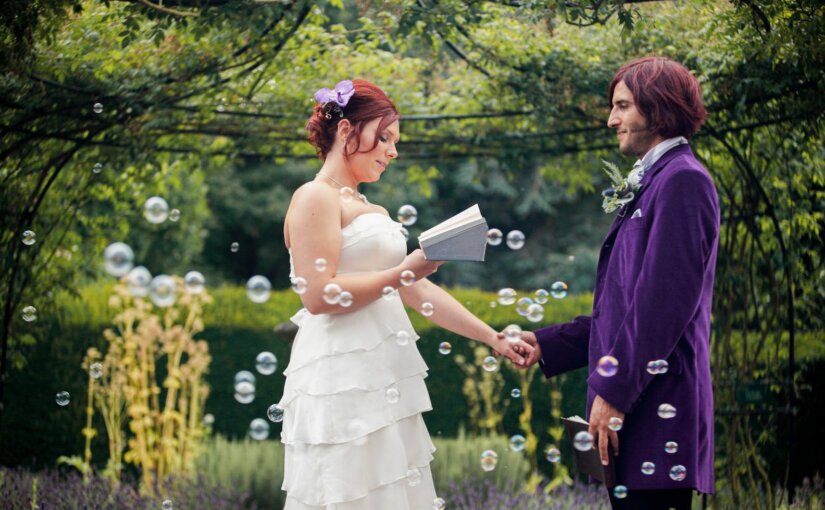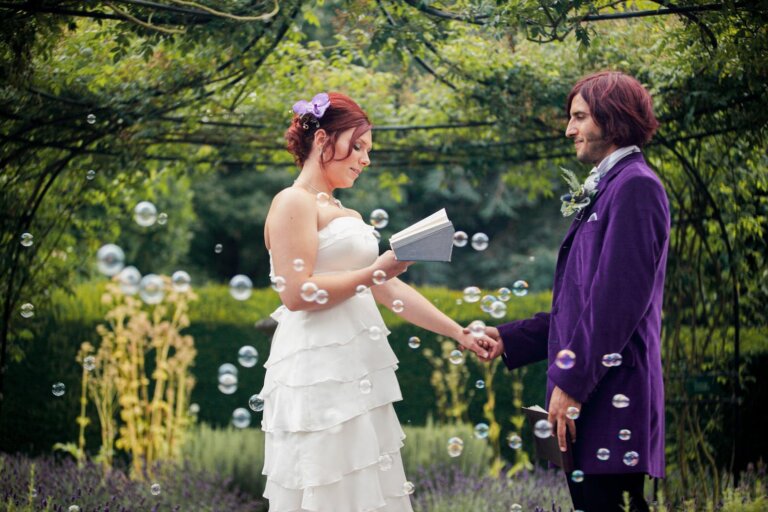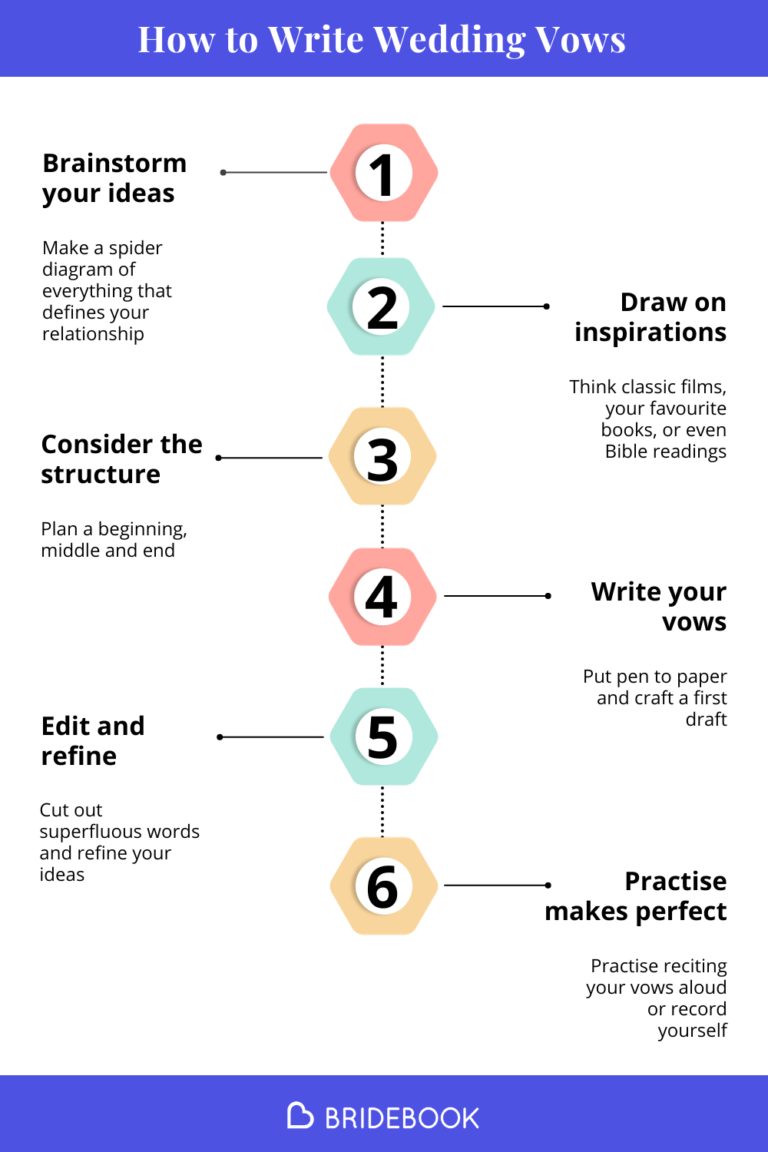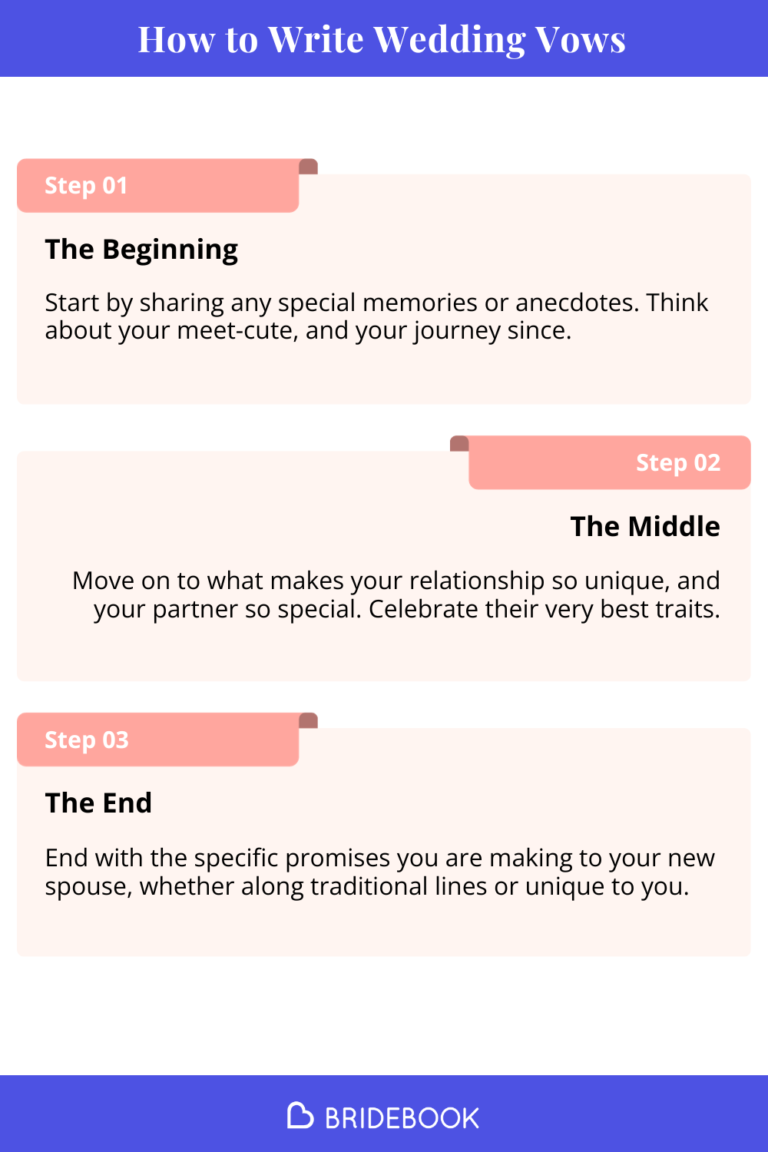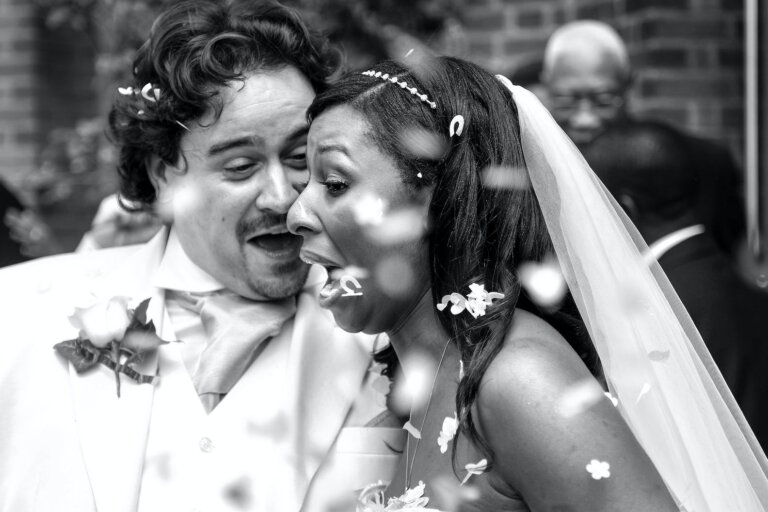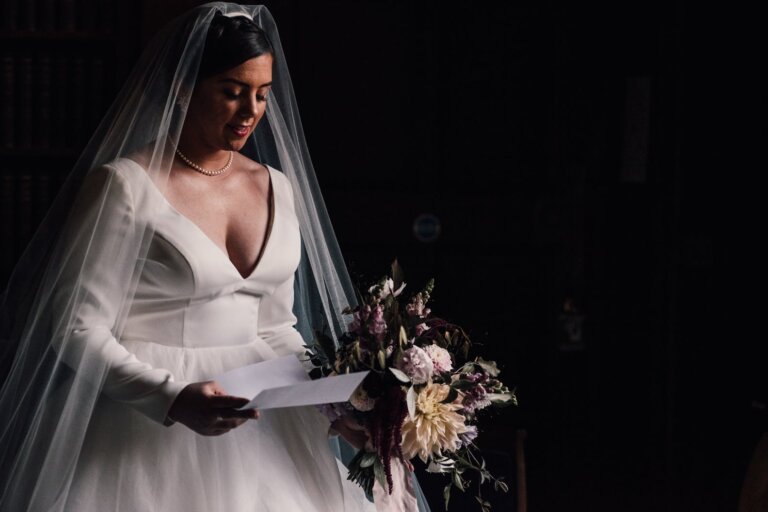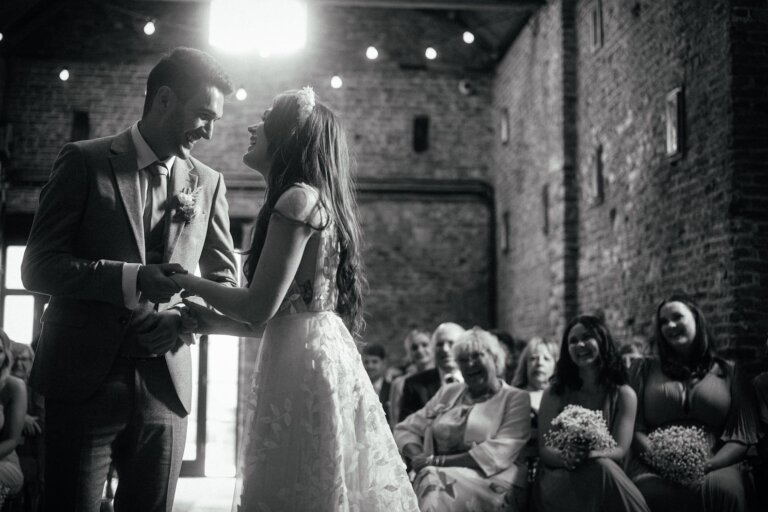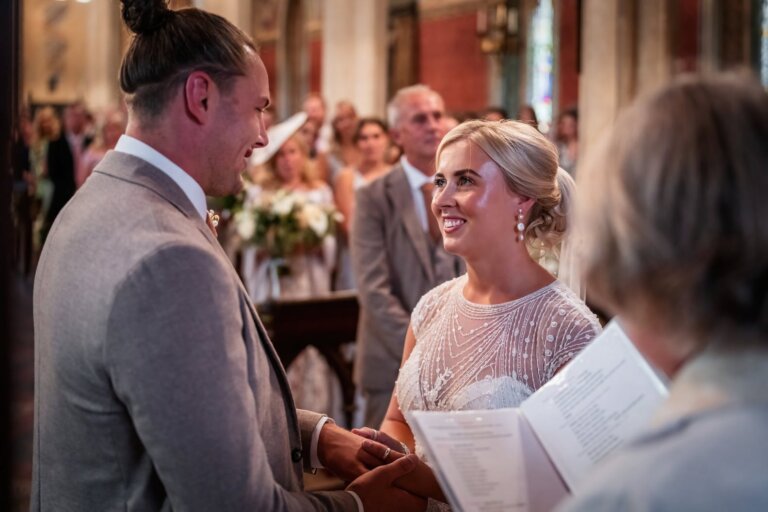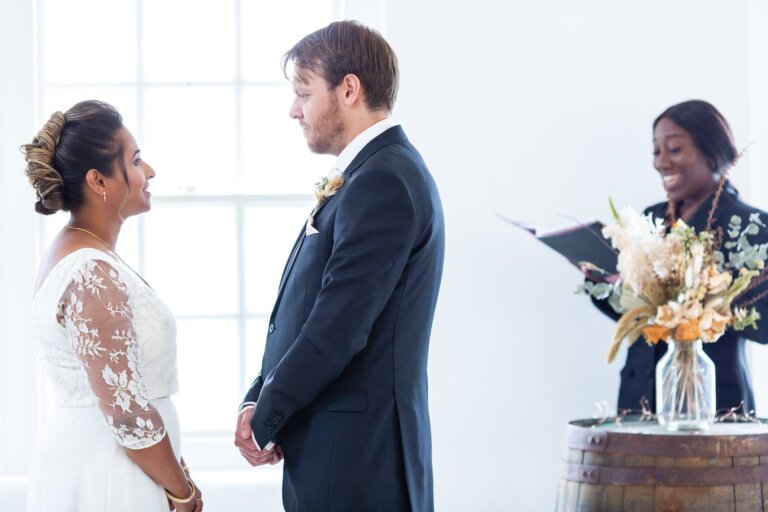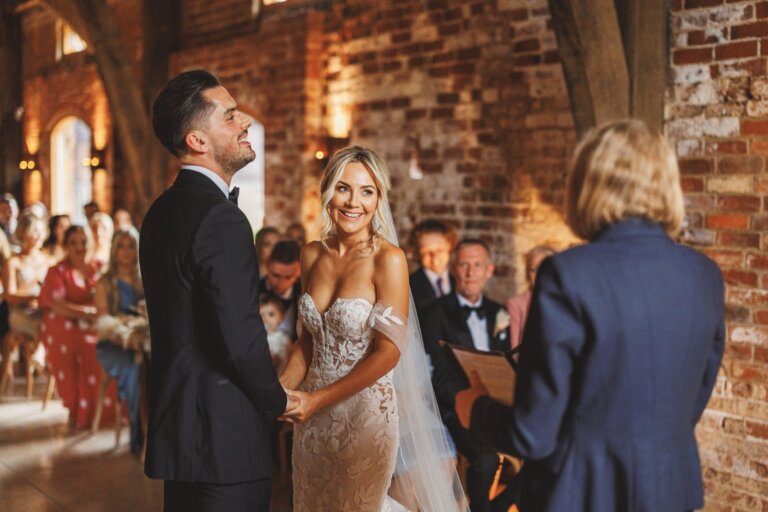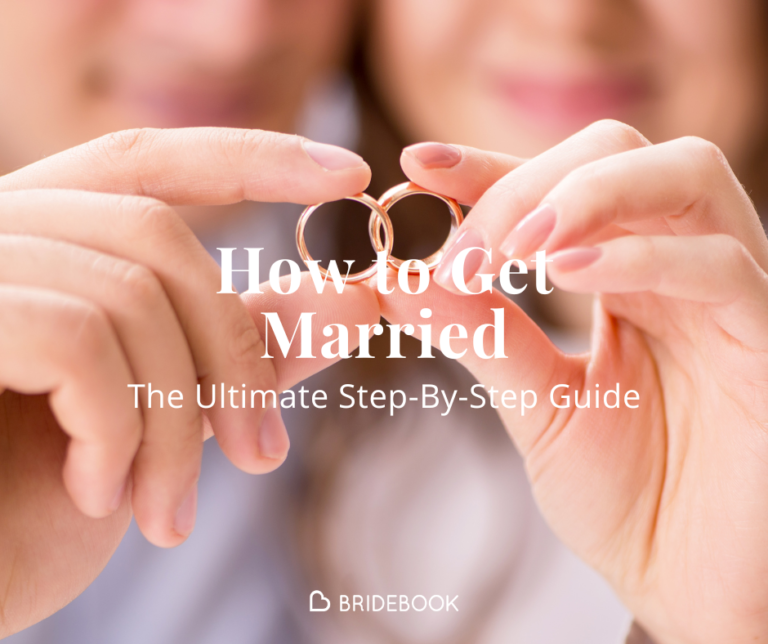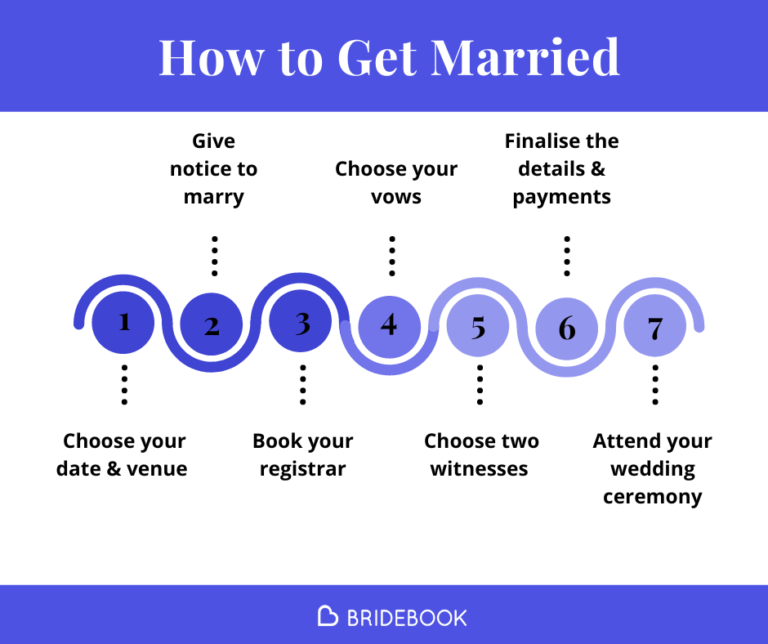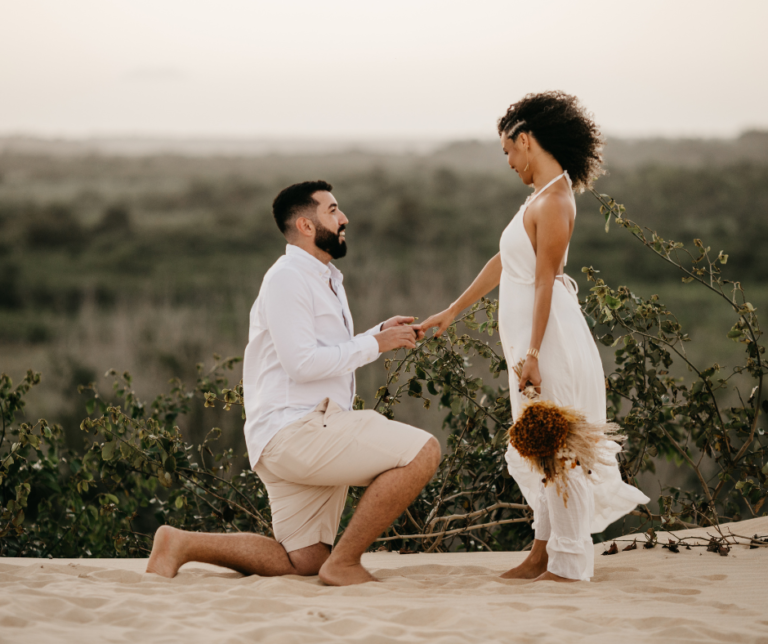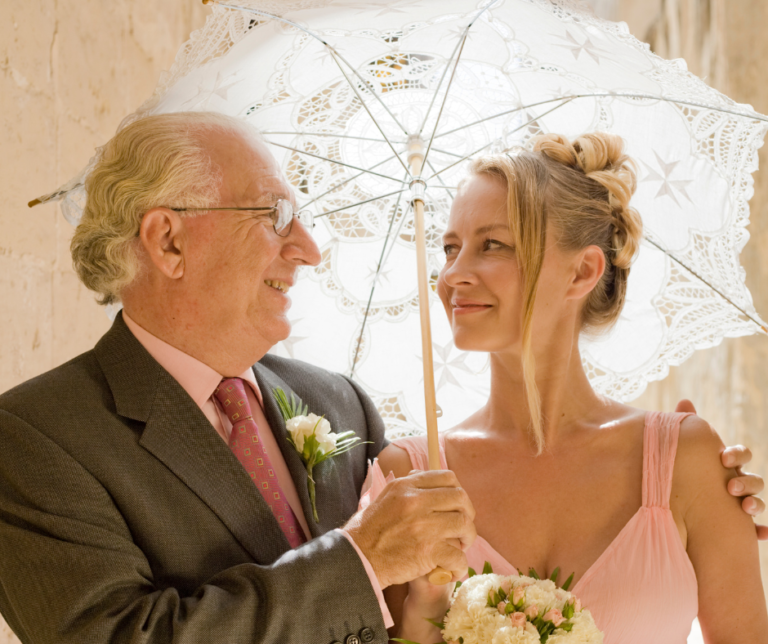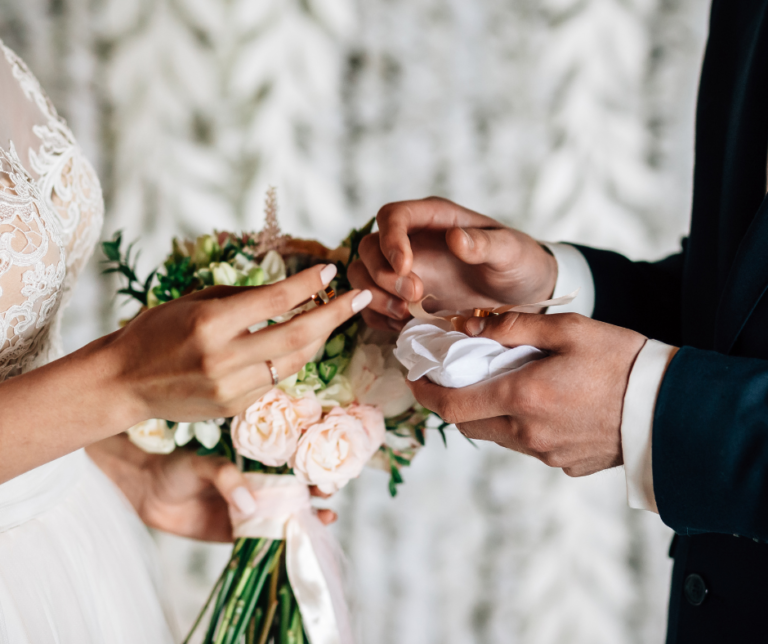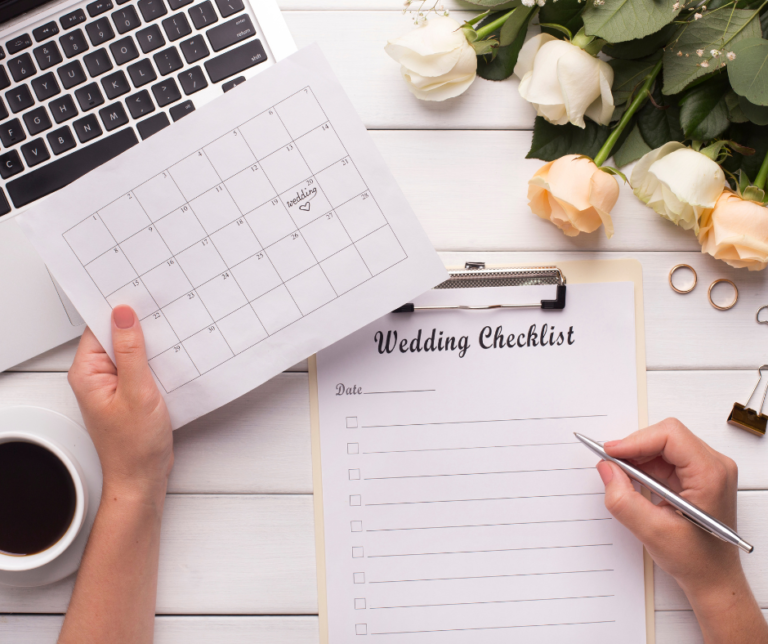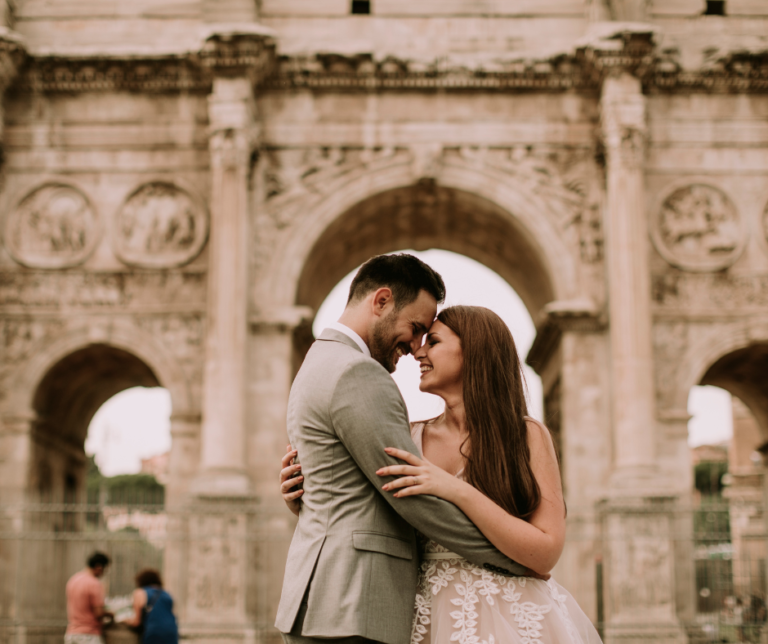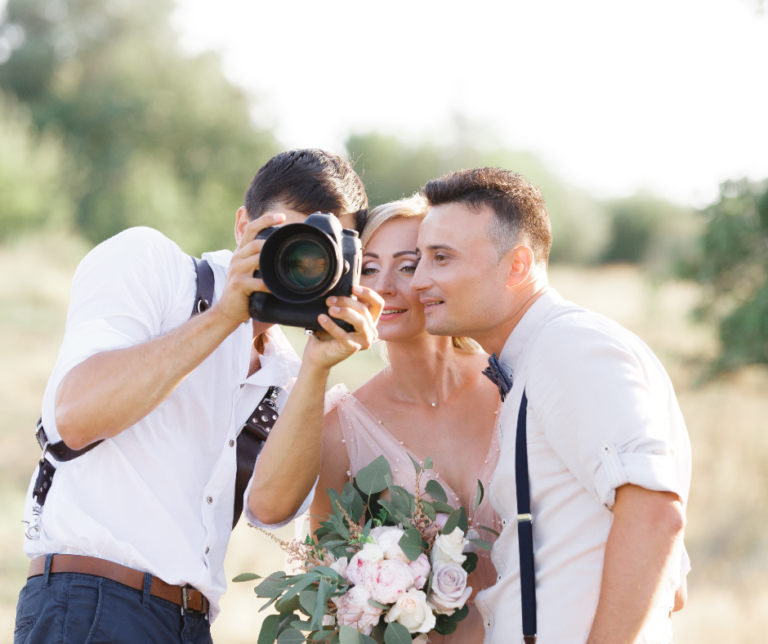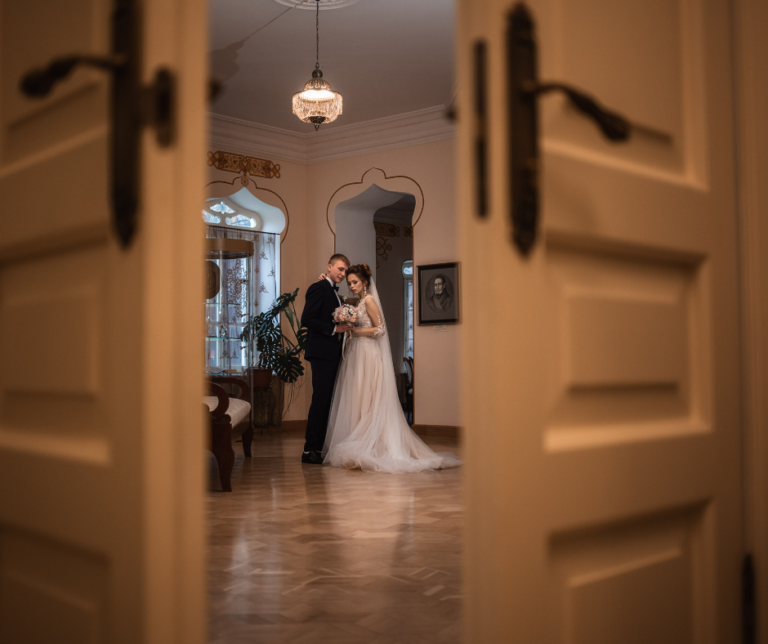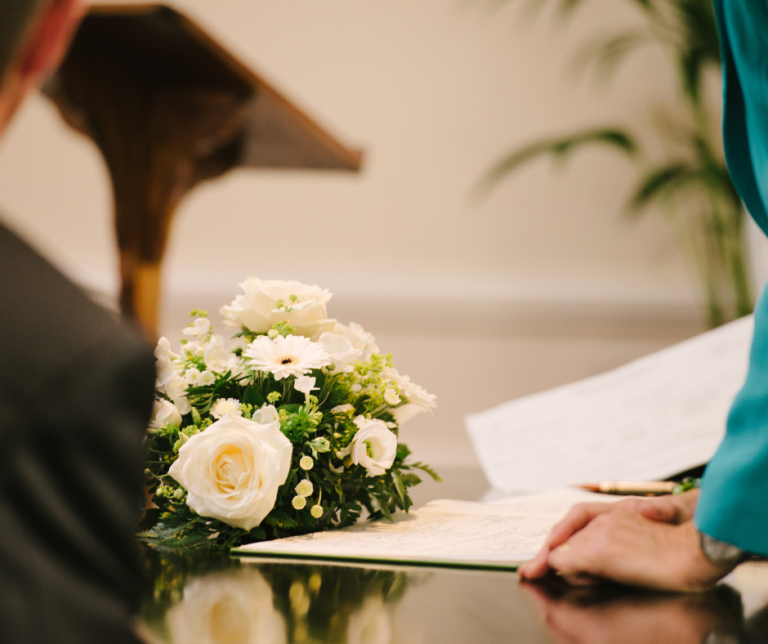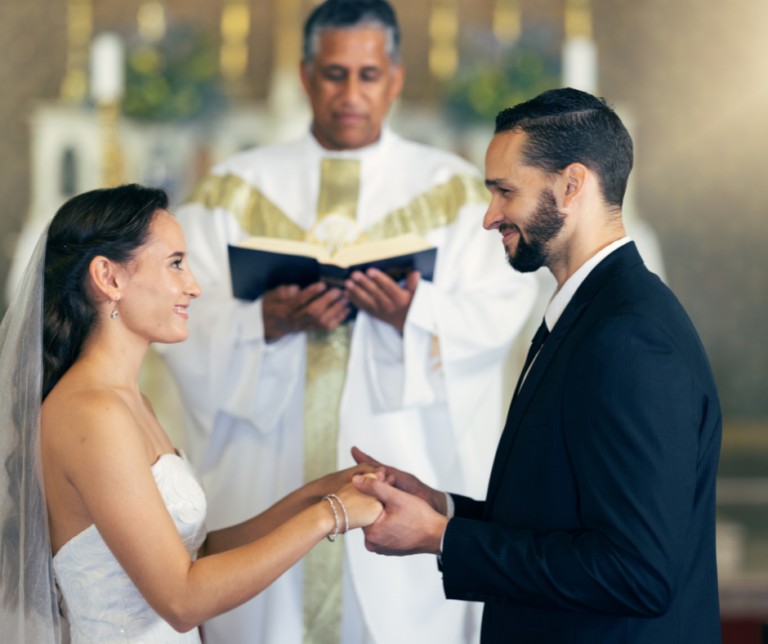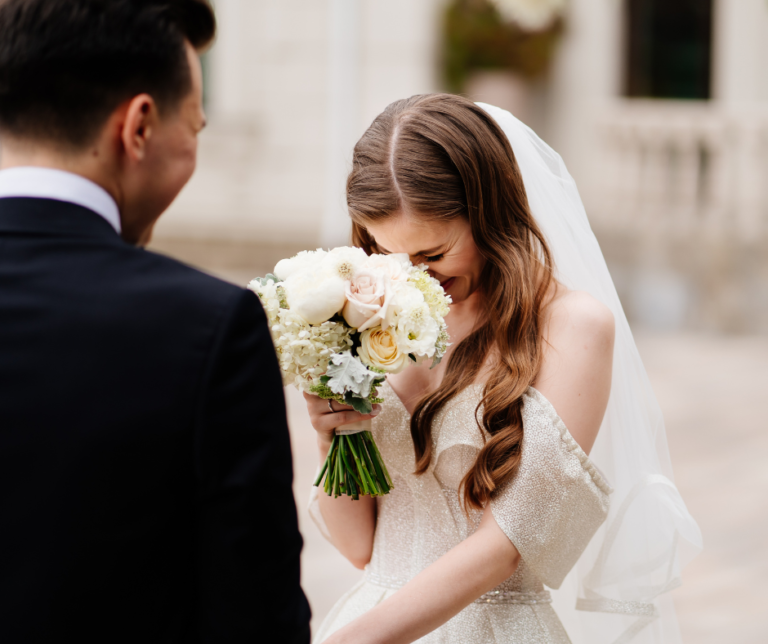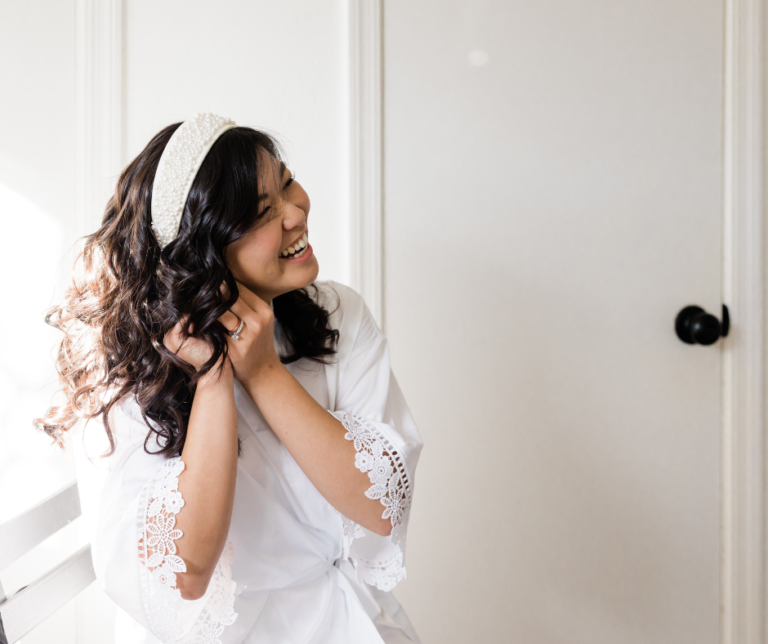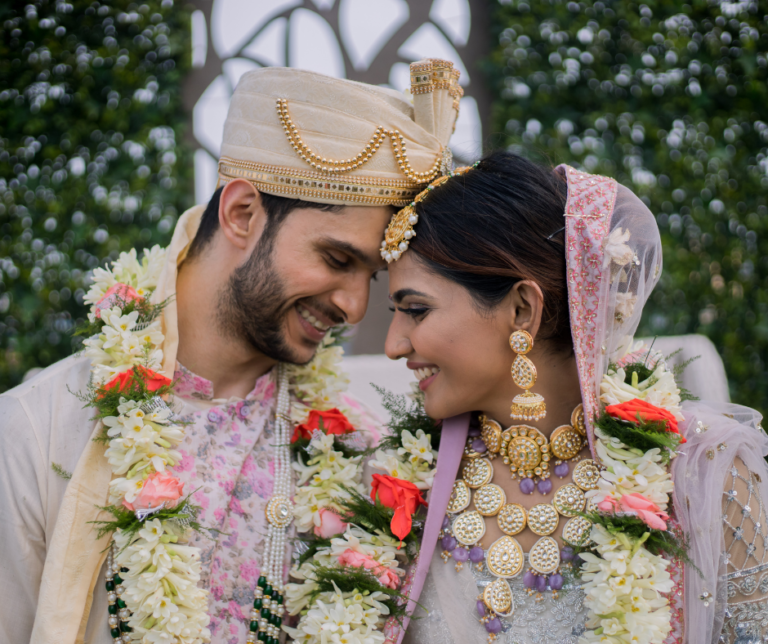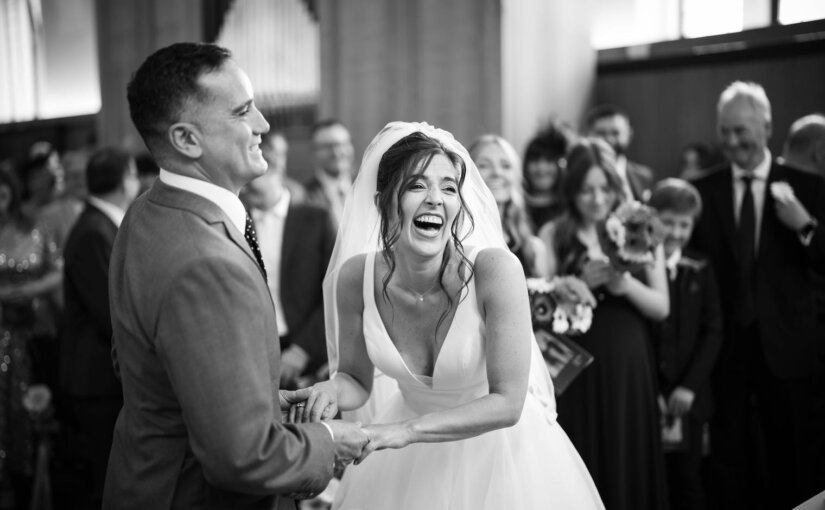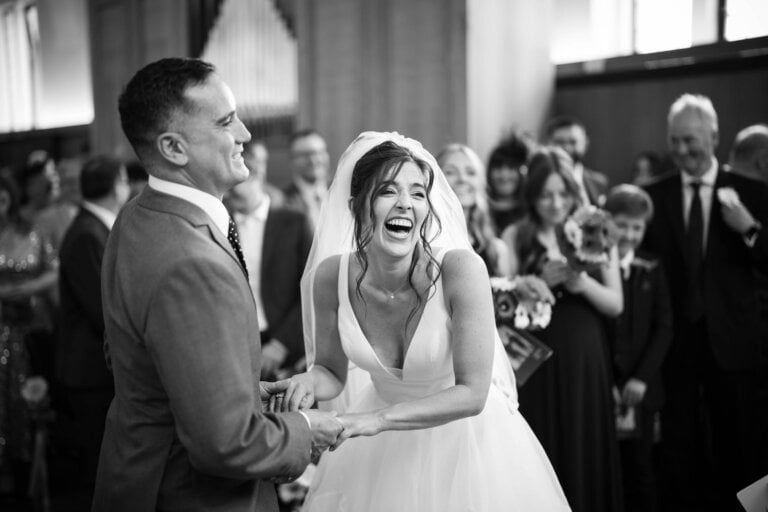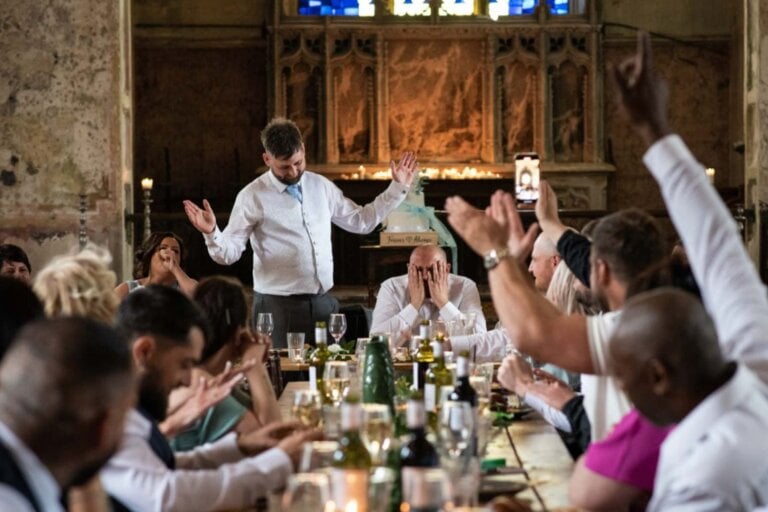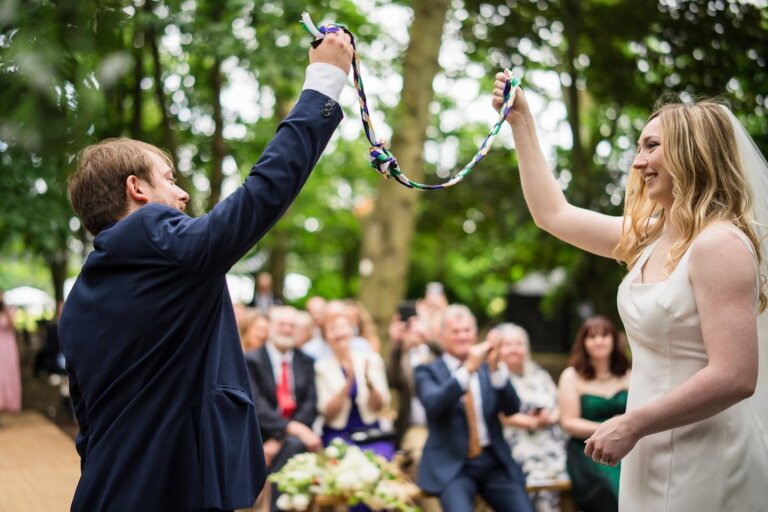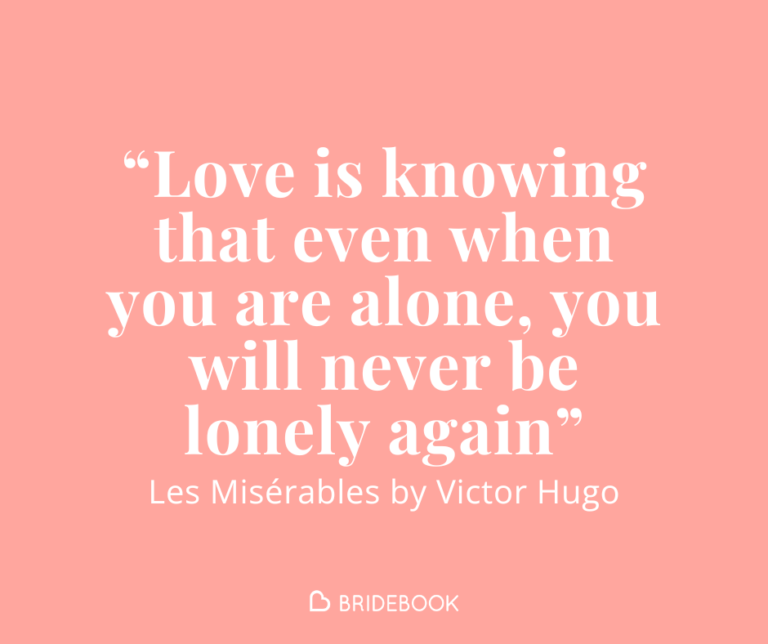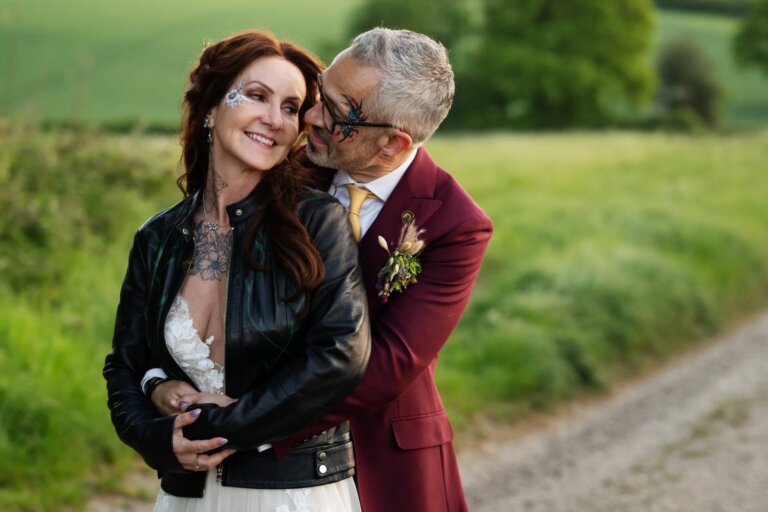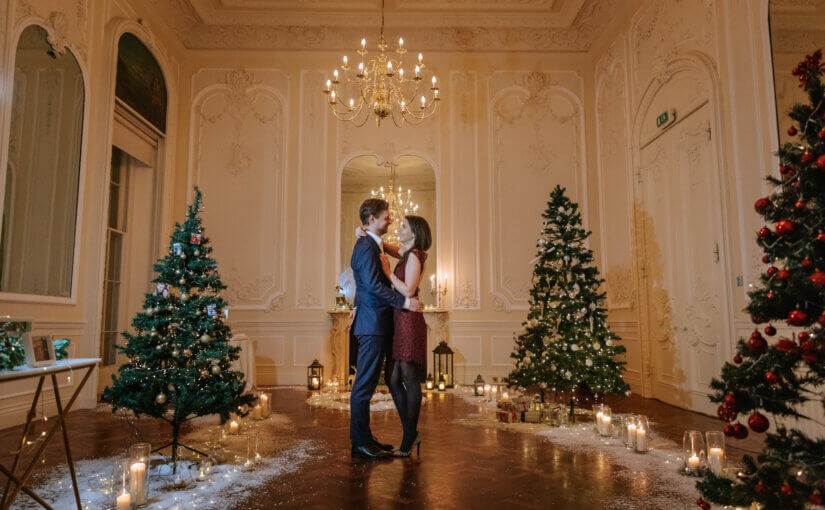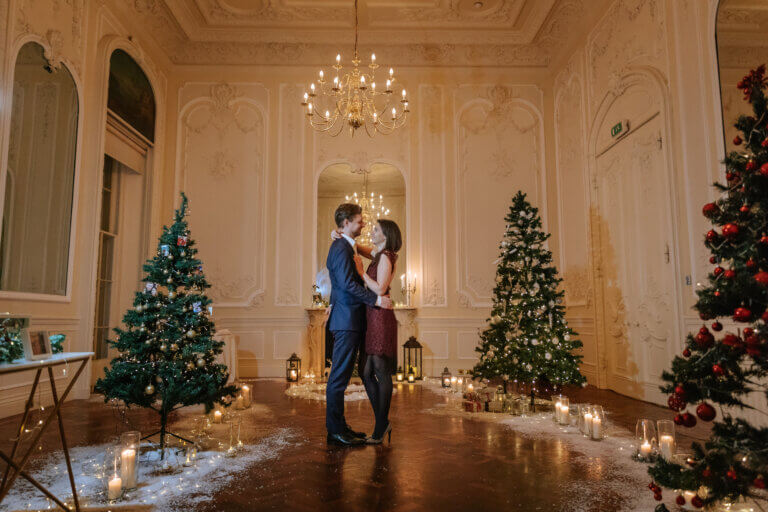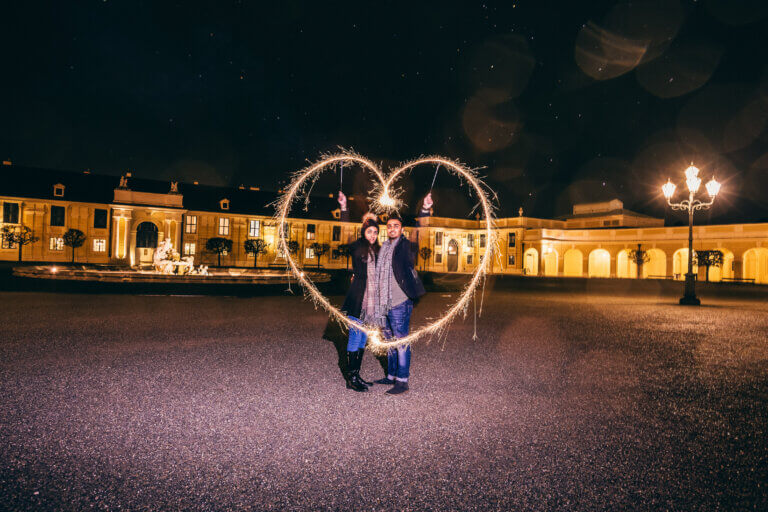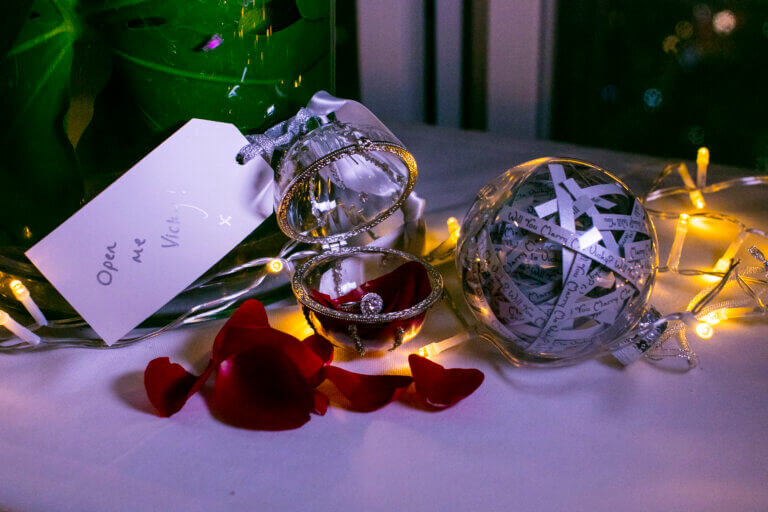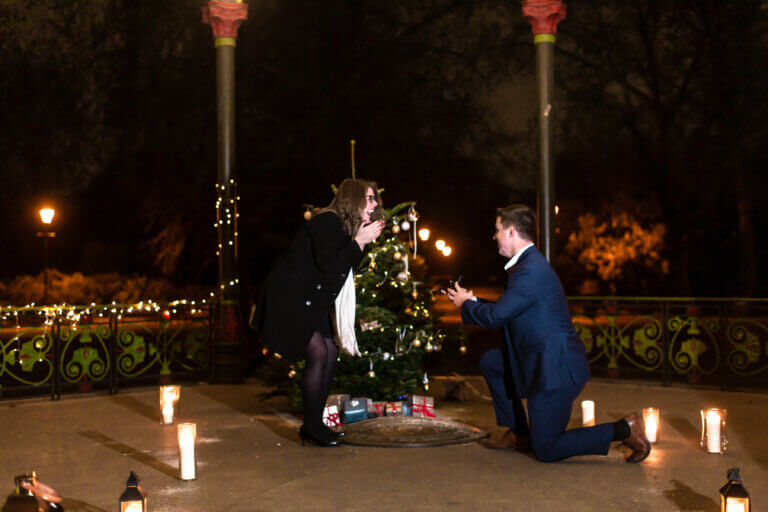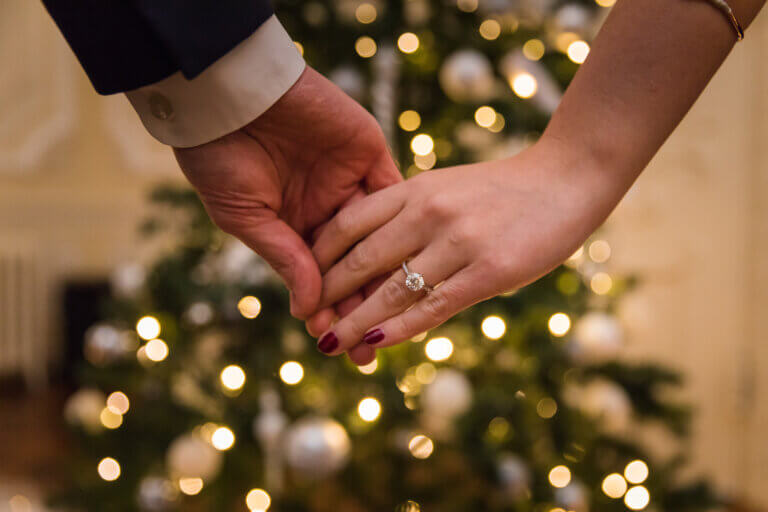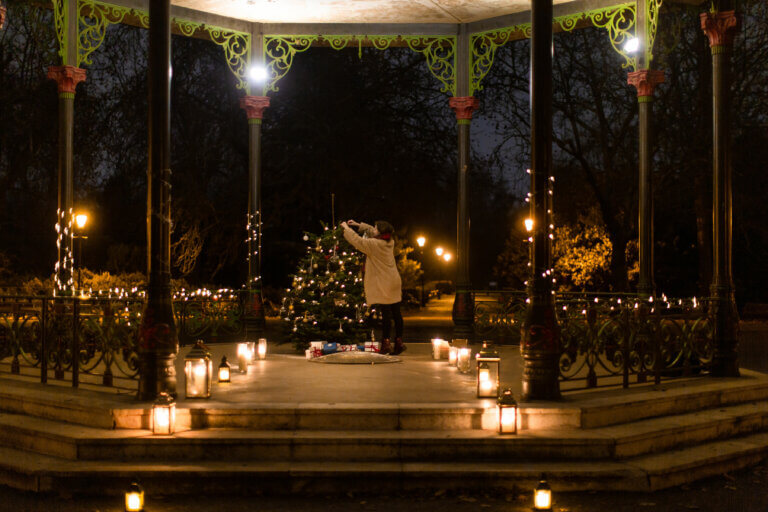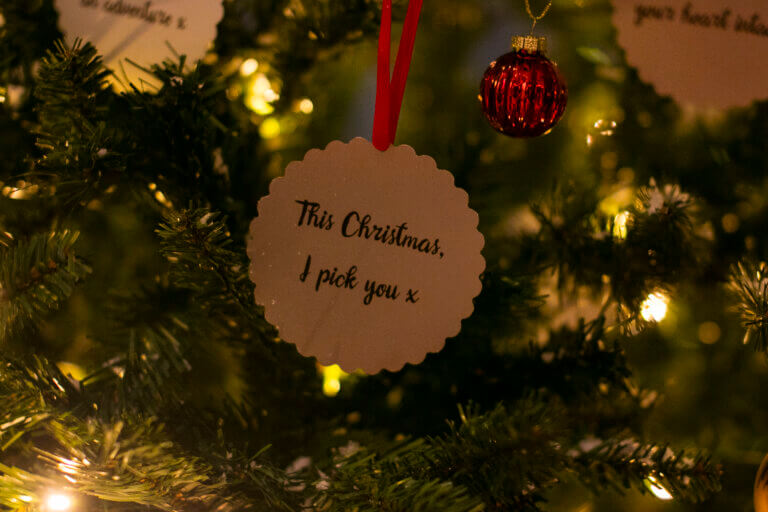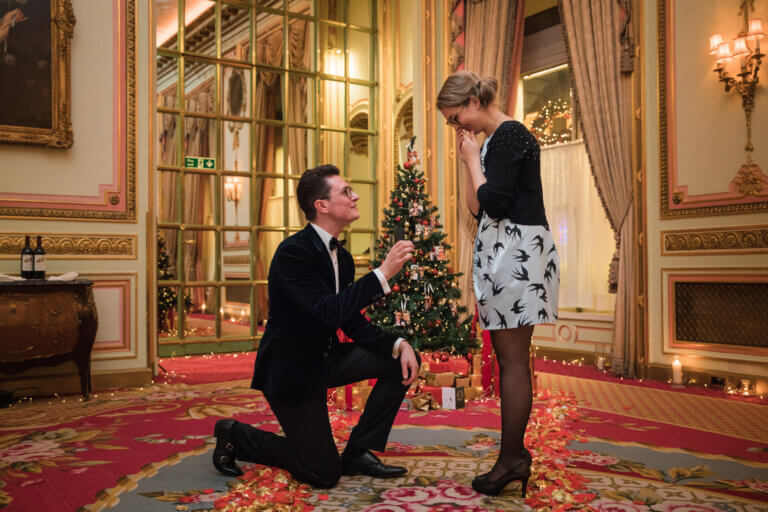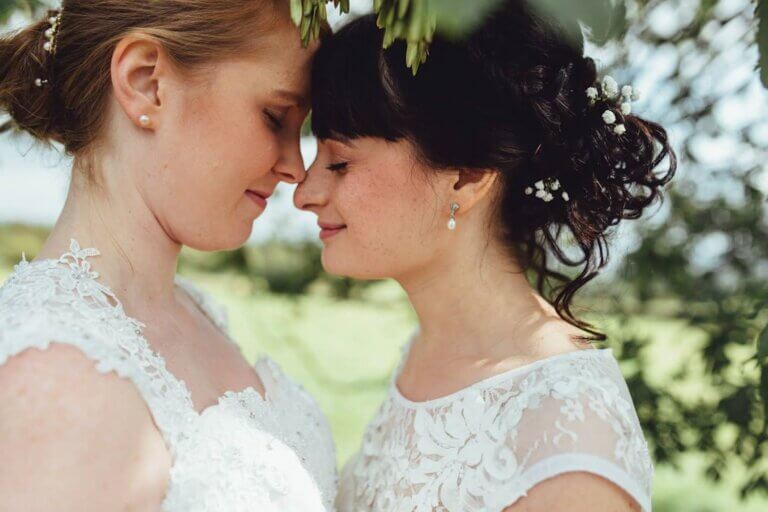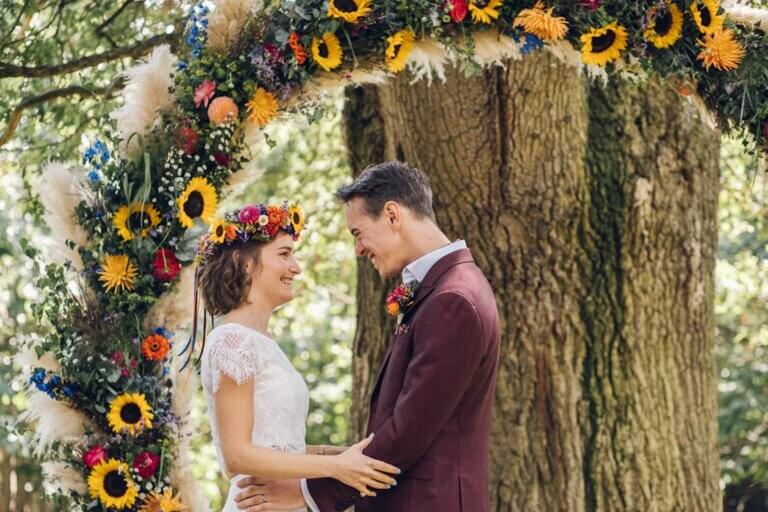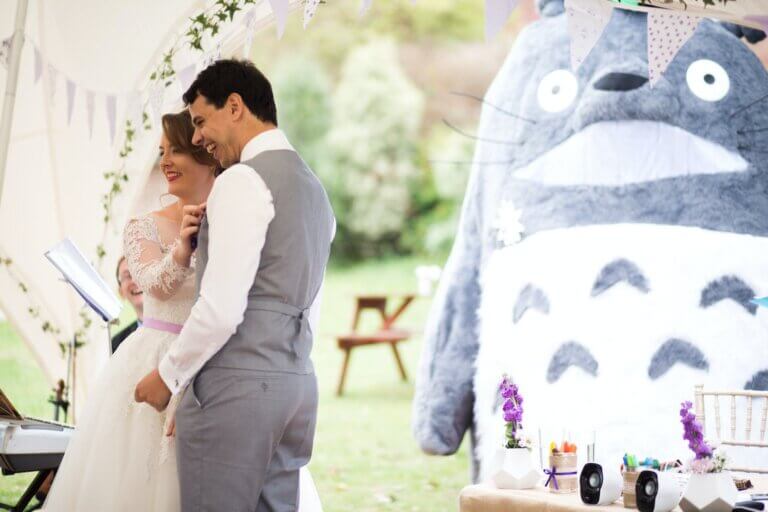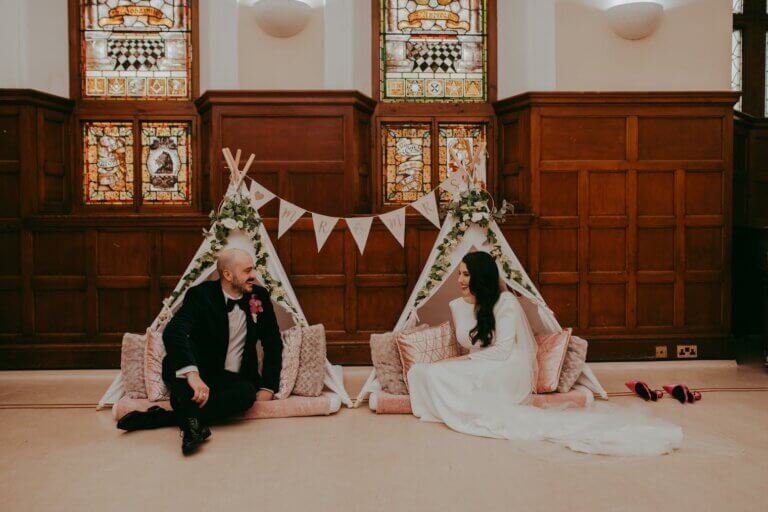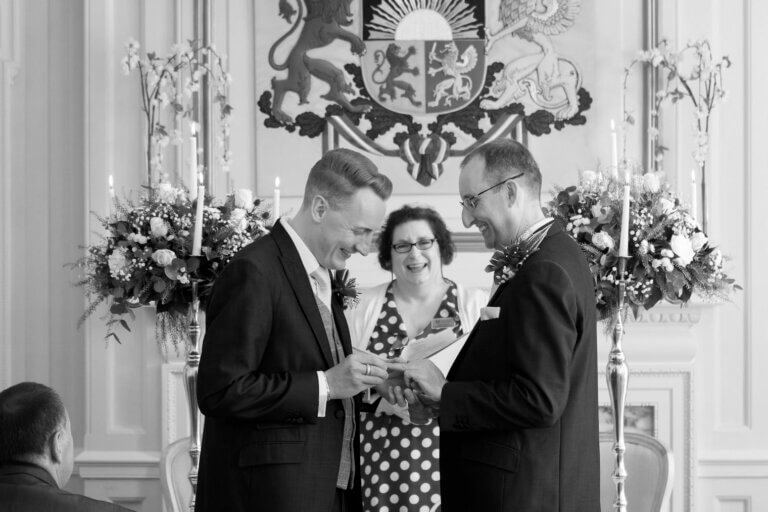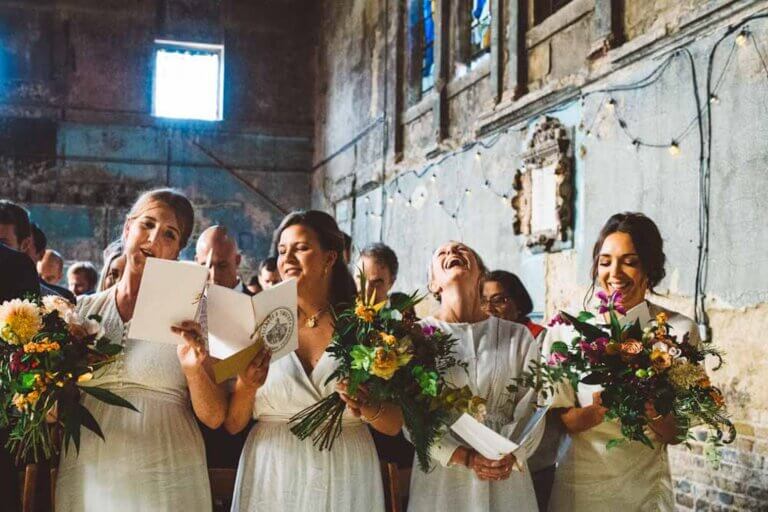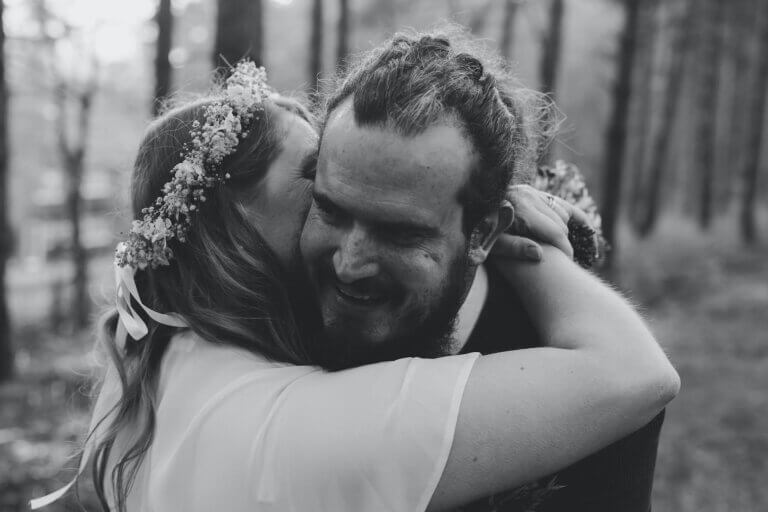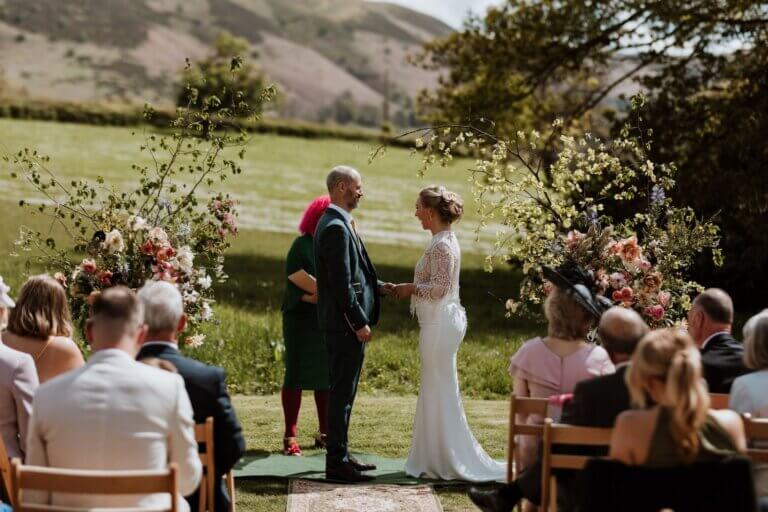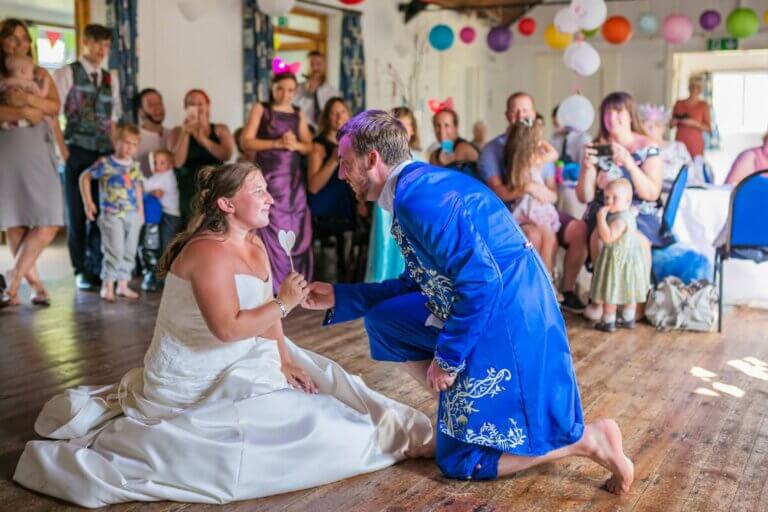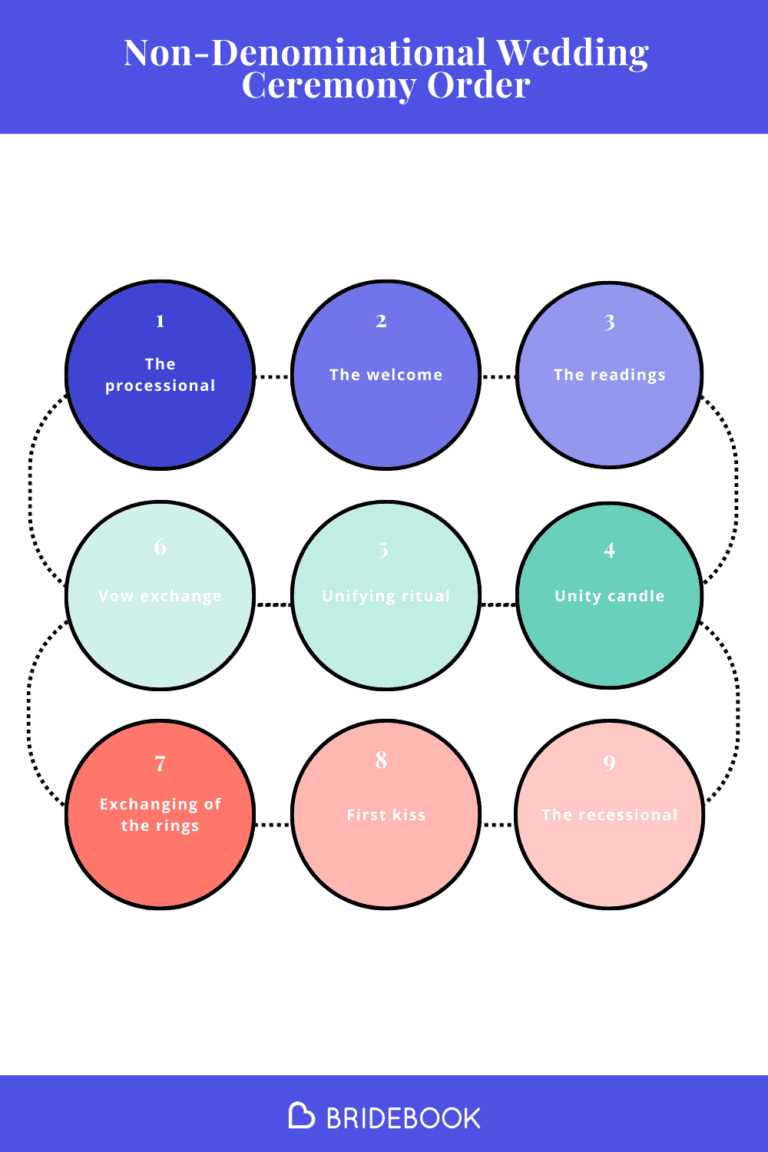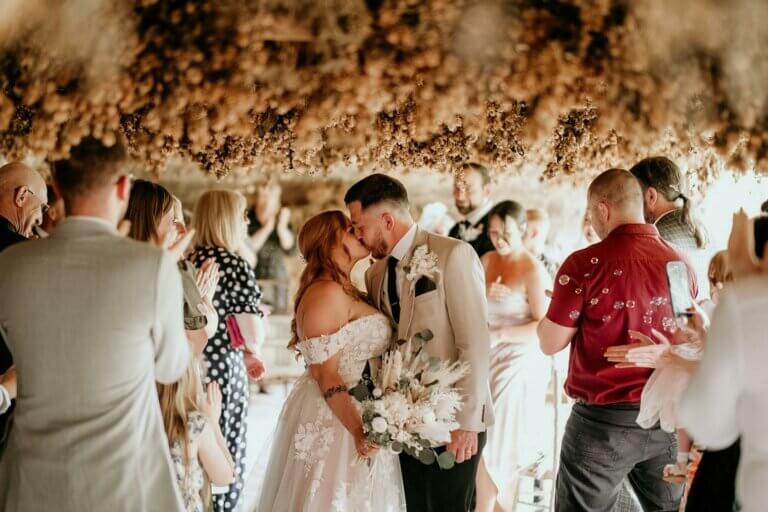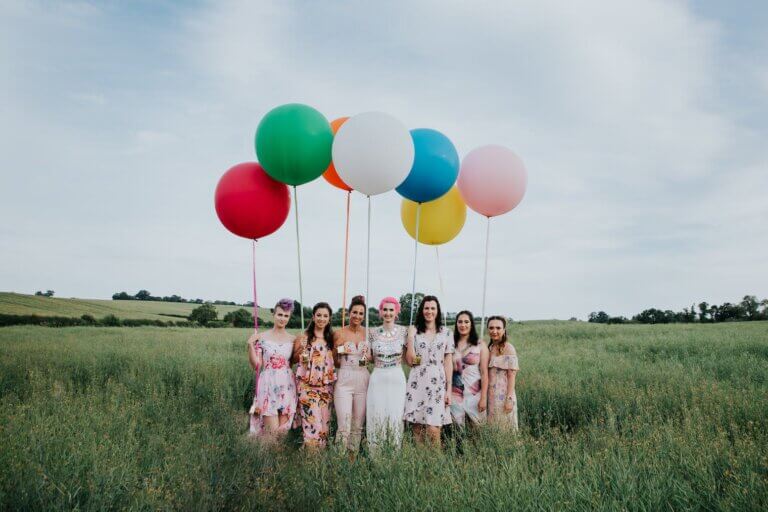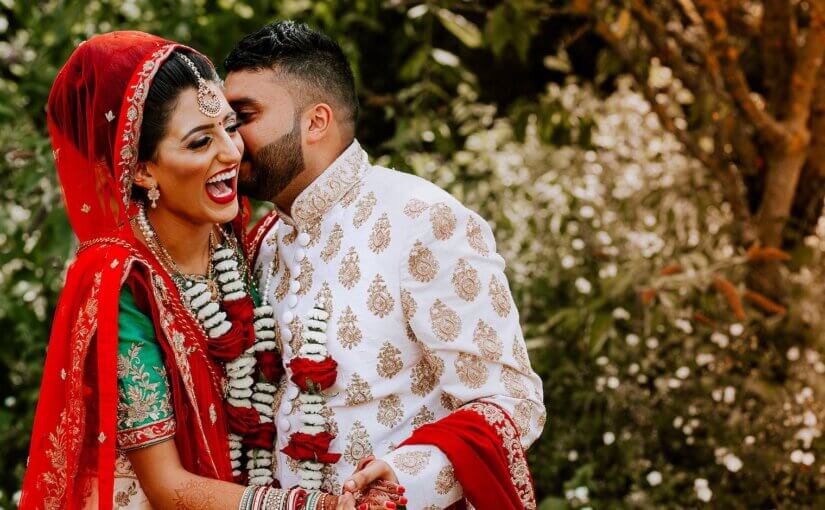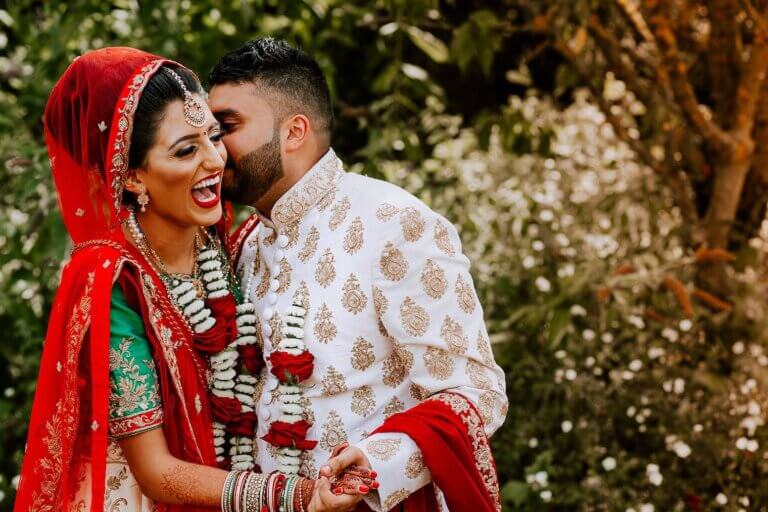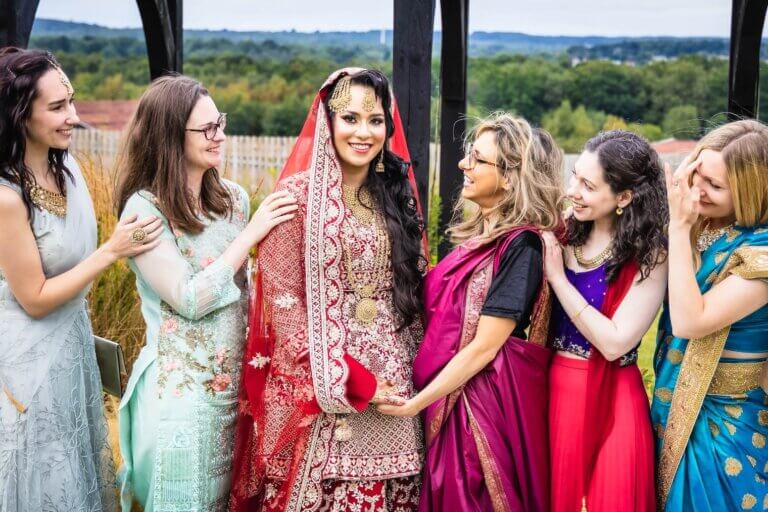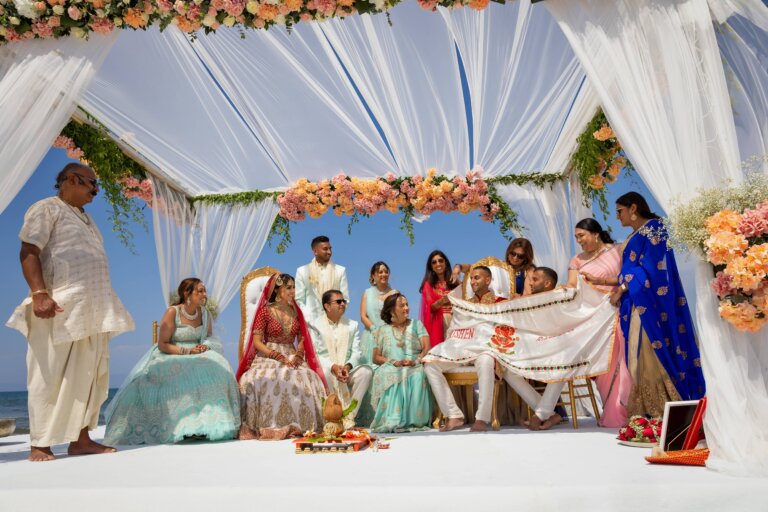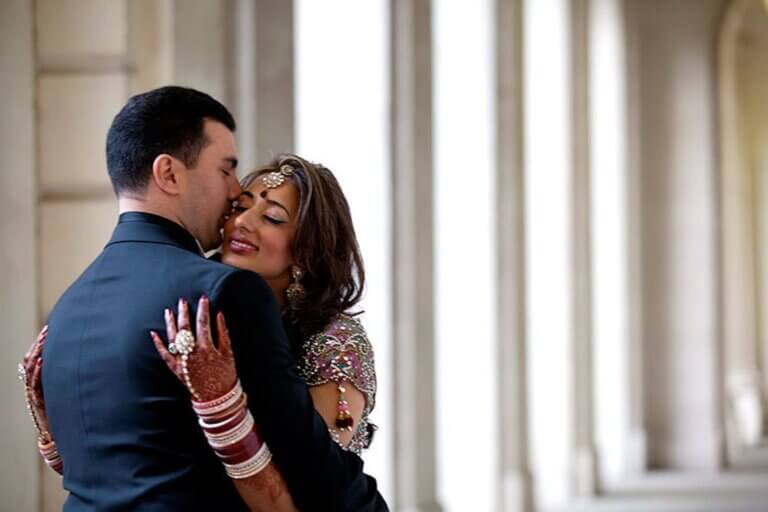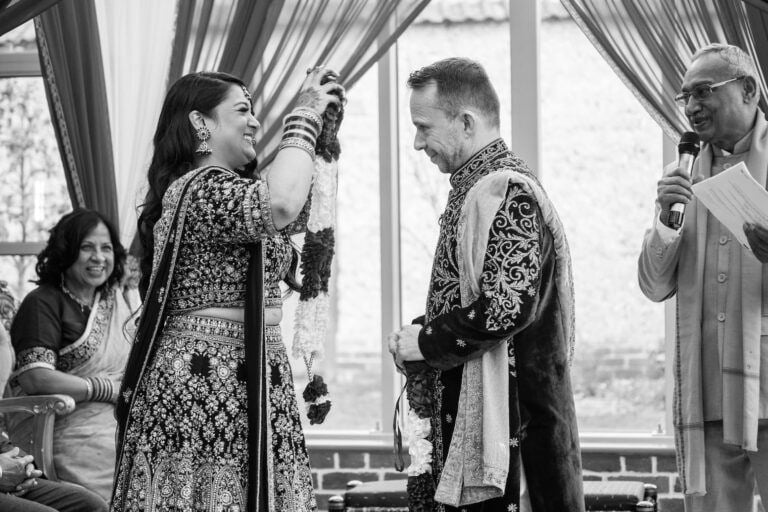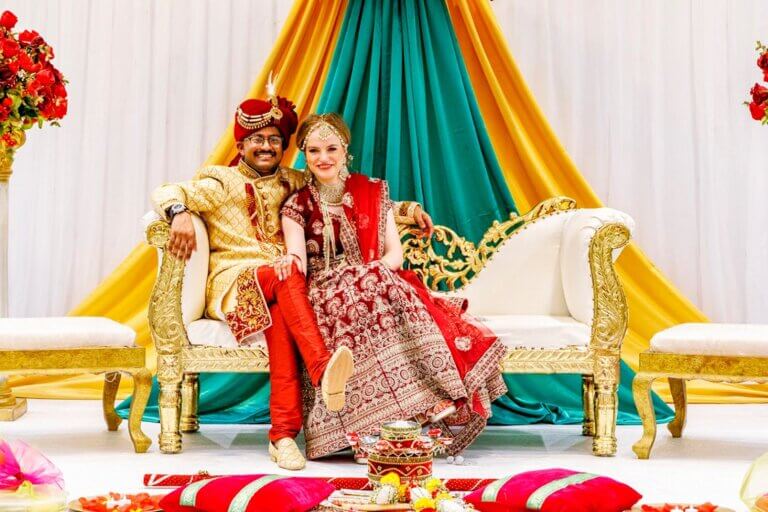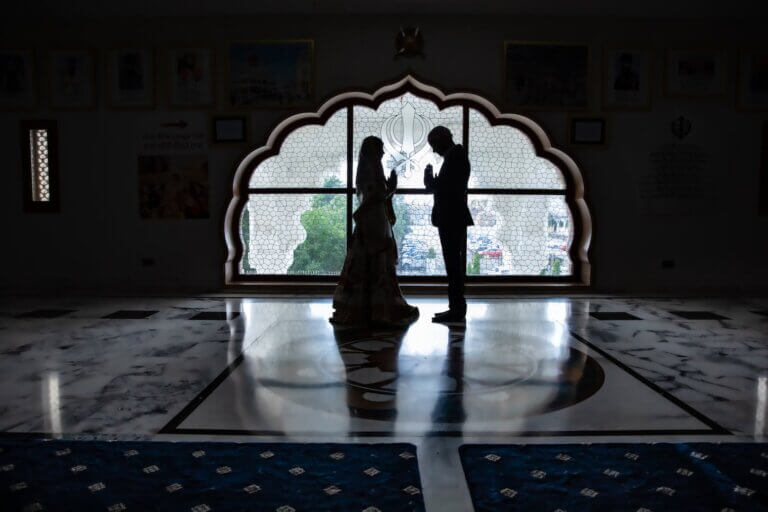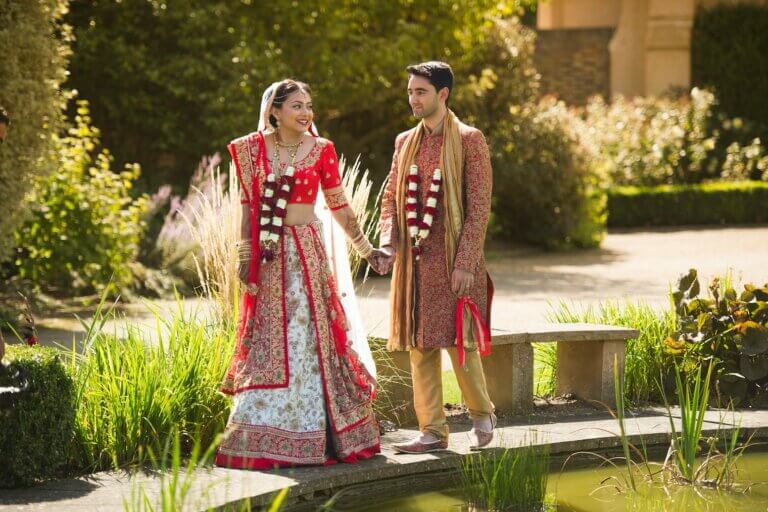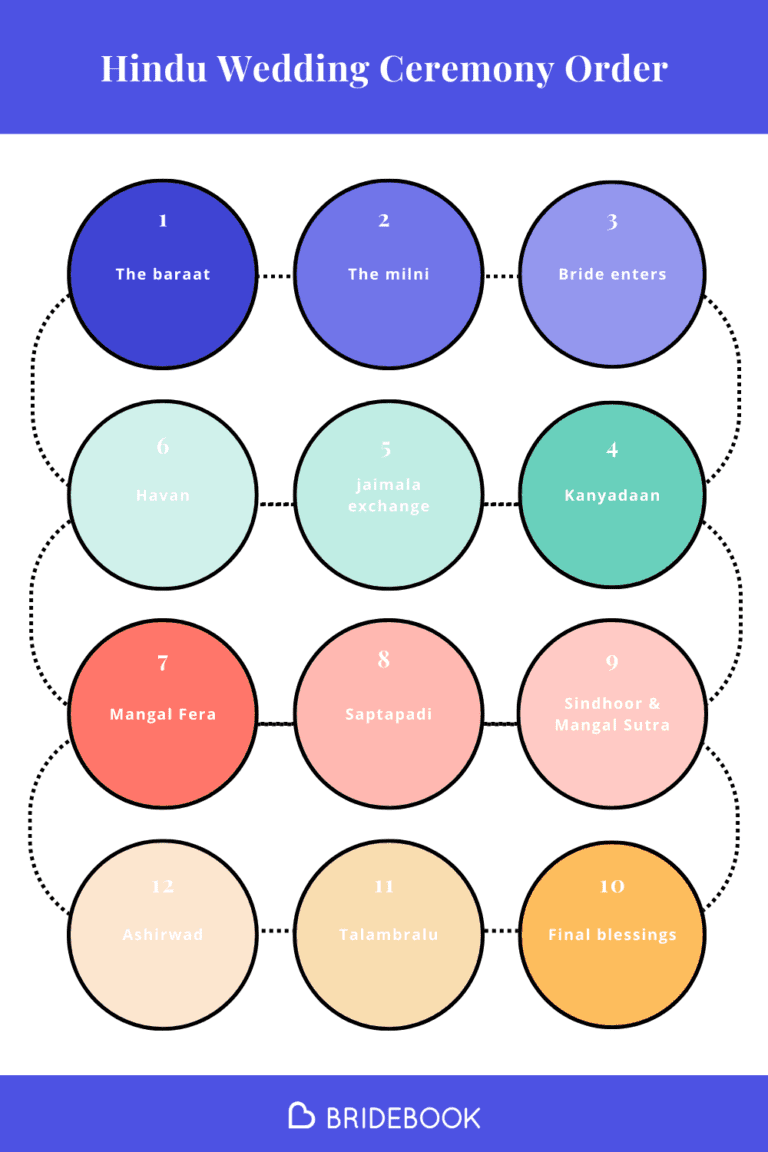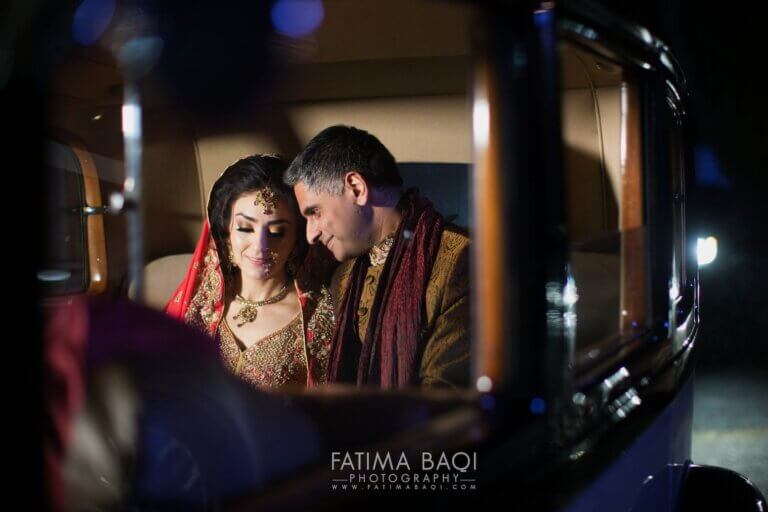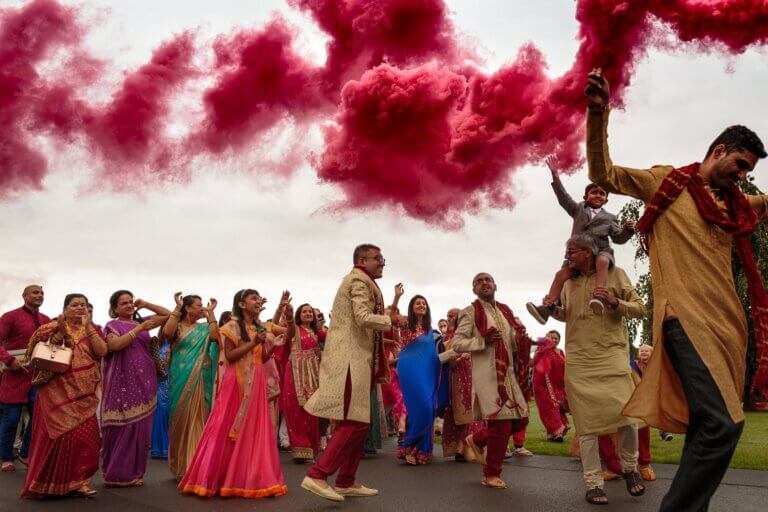Getting married is such a fun and exciting time. After the thrill of getting engaged and enjoying your new-found status as someone with a fiance, it’ll soon be time to knuckle down and plan the biggest party of your life.
When it comes to wedding planning, there’s so much to think about. There’s the venue, theme, flowers, food, ceremony, your guest list, what gifts you should buy the wedding party, what time everything starts… the list goes on and on. There’s so much to think about, research and decide on, that it can be difficult knowing where to even begin. If you’ve never done it before, you’ll no doubt have a ton of questions about how to plan a wedding. It’s only natural: there are a lot of pieces that have to come together to produce the perfect wedding for you.
That’s where we come in. At Bridebook, we’re wedding planning experts, so we know exactly what goes into organising every different type of wedding there is. So, in this guide, we’re going to dive into every stage of planning a wedding, from the moment you get engaged right through to the moment you say, I do! That way, you’ll know what you need to do to have the wedding of your dreams.
Is planning a wedding difficult?
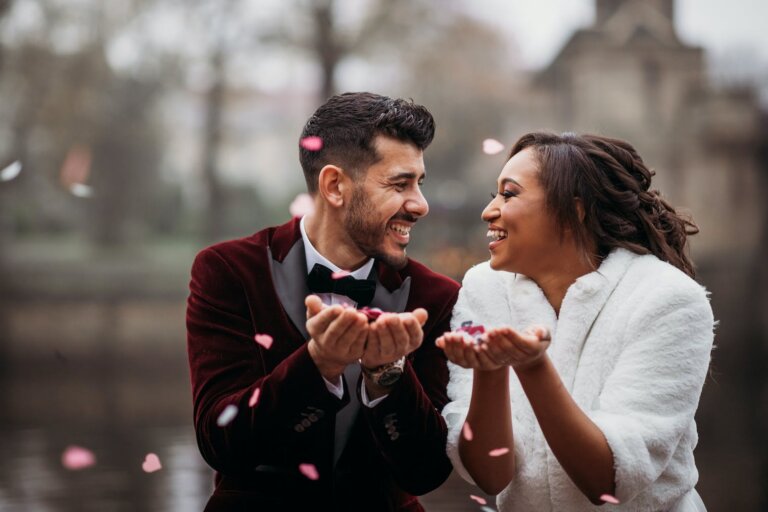
Planning a wedding can be a long process with lots of different moving parts. It takes effort and commitment but doesn’t necessarily have to be difficult. There’s so much to think about, that if you don’t go in prepared, it can make planning a wedding feel more difficult than it has to be. But like with anything, with solid strategies, teamwork and communication, it can be a fun and rewarding process.
How long does it take to plan a wedding?
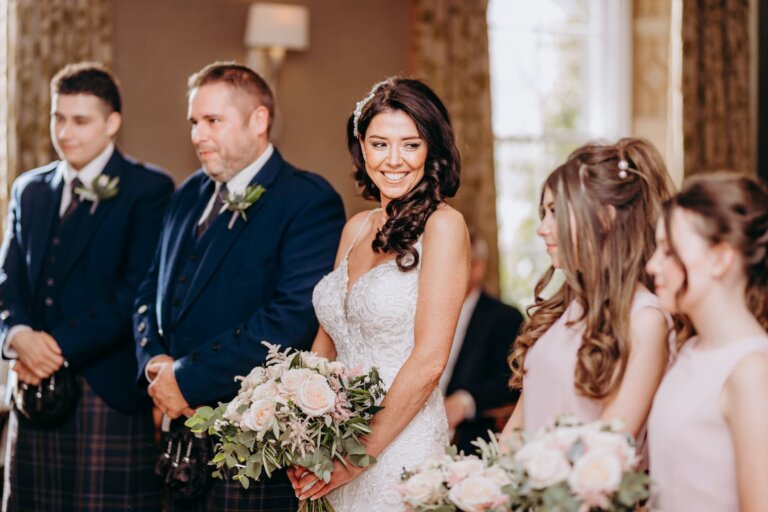
Planning a wedding takes as long as it needs to. Yes, this is a wishy-washy answer, but it’s true. It also heavily depends on the size and scale of your wedding, and how ambitious you want it to be. In theory, you could organise a beautiful registry office wedding in less than a month. You might even be able to plan a wonderful traditional wedding in as little as a few months, but the grander and more personalised you’d like your wedding to be, the longer it’ll take to plan. It’s also worth bearing in mind that popular venues and vendors can be booked up as much as two years in advance.
If you’re having a religious wedding ceremony, this can also determine when you can get married. For example, if you want a Catholic wedding ceremony, you have to give at least six months’ notice before you can get married.
If you do want to get married in the near future but you haven’t even made a start on the planning, think about just how much work goes into organising a wedding – so much so, it takes most couples one to two years to plan one. You’ll have to research, design, speak to, book or pay for your:
- Timeline
- Ceremony
- Budget
- Guestlist
- Venue
- Reception
- Officiants
- Vendors
- Hair and beauty
- Attire
- Decor
- Catering
- Rings
- Marriage license
- Accommodation
- Gifts and favours
- Stationery
- Honeymoon
Plus a heck of a lot more. If you think you can plan that much stuff in just a few months, then go for it. It’s more than achievable if you’re happy having a smaller wedding, like a registry office ceremony, but larger, more traditional or religious weddings will be quite a stretch. But, never say never – just be prepared to get stuck in.
How soon should you start planning your wedding?
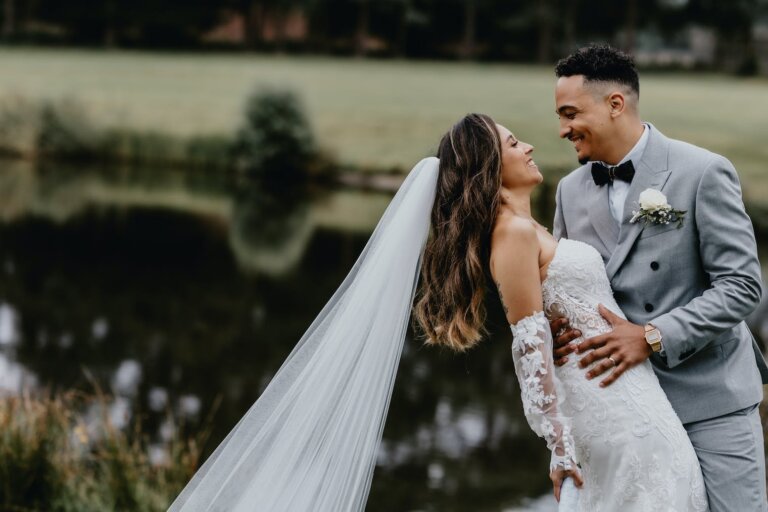
This can be a difficult question to answer, because it depends on how much time you have between now and your perfect wedding date. In an ideal world, you’ll want to allow at least two years to plan your wedding, as this is generally enough time to allow you to find and book your dream venue and vendors – especially if you want to go for something popular with other couples.
Depending on your circumstances, you may want to get married on a specific date, which may well be a year or less away. If this is the case, you’ll absolutely be able to do it, but it might mean you’ll have to work a little harder to find a venue and professionals who still have availability, especially if your chosen date falls on a Friday, Saturday or Sunday.
If you’re having a smaller, more intimate wedding, then you’ll find it easier to organise a wedding in a shorter timeframe. The general rule is, the larger the wedding, the more time you should allow for the planning. If you can, give yourself plenty of time, so you don’t need to rush, you can spread out some of the costs, and you’ll have a wider choice when it comes to venues and vendors.
Think about hiring a wedding planner
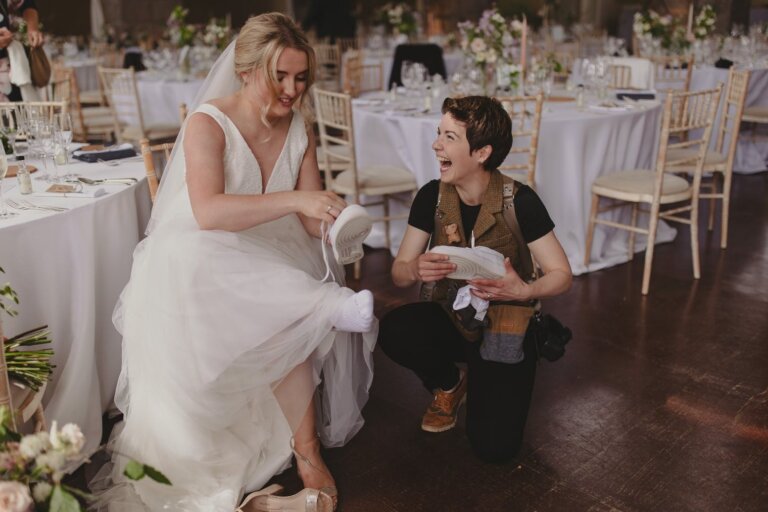
Before you begin planning your wedding, and definitely before you make any bookings or pay any deposits, talk to your partner about whether or not you’d like to hire a wedding planner.
Wedding planners are skilled professionals who have the time, knowledge and experience needed to plan a fabulous wedding that matches exactly what you’re looking for. They have connections and relationships, as well as great negotiating skills to secure dates and grab bargains. They can be an invaluable asset to you, especially if you’re not sure how much time you’ll have to spare.
The only downside is, wedding planners can be expensive. The average cost of a wedding planner in the UK is £1,891, which is roughly 10% of the average cost of wedding. This may sound like a lot, especially if you’re already spending close to 20 grand, but wedding planners know all the tricks of the trade to save couples money. They may even save you more money than their fee, which can make them absolutely worth the cost.
Because of that, if you are going to hire a wedding planner, you need to make the call early on. If you hire them at some point down the line, after you’ve already signed contracts and paid deposits, then you won’t get the full value that they could bring.
So, if you are keen to take advantage of a wedding planner’s time and expertise, make sure you hire them at the start of your wedding planning journey so you get the most value.
How to plan your wedding in 31 steps
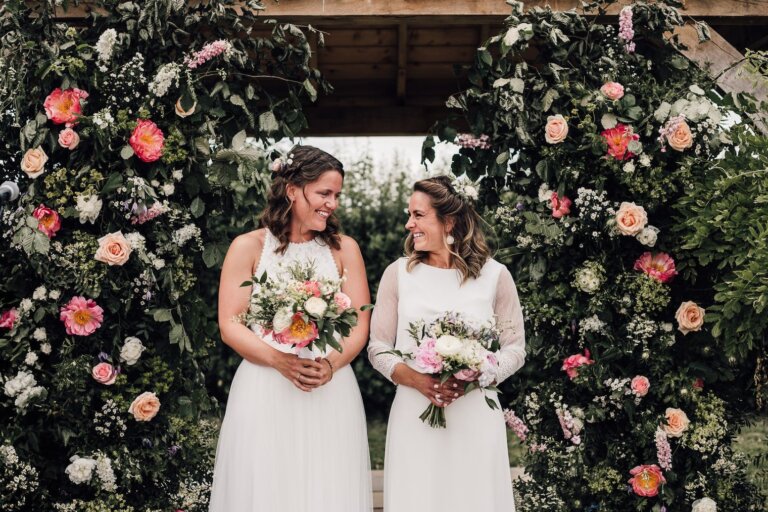
Planning a wedding can be a long and tiring, but also super fun and rewarding, experience. There’s so much to remember, that it’s hard to know where to start. Do you jump straight in and find your venue? Do you set your date first? Or perhaps something else?
Here at Bridebook, we’ve helped more than two million couples plan their perfect wedding, so we know a thing or two about what to do, when to do it, and where to start. So, follow the 31 steps below so you can plan your big day in style and have the wedding you’ve always envisioned in your head.
1. Set your maximum budget
It’s no secret that weddings are expensive, and if you don’t watch what you spend things can very quickly spiral out of control. As we’ve already highlighted, weddings in the UK cost an average of £19,184, which is a rather big chunk of change. But, many couples spend far less than this – and some spend far more. Either way, it’s important to know how much budget you have to play with so you can keep on top of your finances.
Before you spend a penny on your wedding, you must must must work out your budget. Only then will you know the size, scale and scope you can go for. To do this, you can use our handy wedding budget tool, which you can use to look at your own finances and how they align with the hopes you have for your wedding. Only once you have an accurate idea about how much money you have to spend on your wedding can you start to make plans – otherwise you risk overspending and getting yourself into a tricky situation.
That being said, there are ways to cut costs so you can still have the wedding of your dreams even with a limited budget. Read our ultimate guide to saving money on your wedding for more information.
2. Speak to family about help paying for your wedding
As part of working out your total wedding budget, if you plan on asking family for help paying for your wedding you’ll want to speak to them at the start of the process. If this is something you’d like to do, know that you’re not alone – our 2023 Wedding Report found that a third of couples ask family for help paying for this and that. But, to make sure you and your family are on the same page, it’s something you’ll need to be open and honest about as soon as possible.
Not only does it give your family time to save money if they need to, it also ensures you can factor it into your budget. This makes managing your money much easier. If you’re not sure how to broach this tricky subject with your loved ones, read our blog post on how to ask your parents for help paying for your wedding.
3. Think about your ideal wedding date
One of the most common questions you’ll get as an engaged couple is when’s the big day? or have you set yourself a date yet? It’s all asked out of love, of course, because everyone’s so excited for you! But, it’s also one of the most important decisions you’ll make – without a date, you can’t book all the exciting things that will make up your wedding.
You might decide to get married on a specific date, such as the anniversary of when you met. Or, you might let cost be a deciding factor, with our 2023 Wedding Report revealing that Tuesdays in winter are among the cheapest dates for a wedding. Or, you might let availability decide, such as if your favourite venue only has certain dates left to book.
Whenever you choose to get married, once you have your date set in stone you can begin planning everything else around it.
4. Think about wedding styles, themes and colour schemes
Since the moment you got engaged, you’ve probably spent many hours watching videos, reading magazines, browsing Pinterest, scrolling through Instagram… we could go on. By this stage, you may have a few ideas about how you’d like your wedding to look and feel, but now’s the time to get serious. Sit down with your partner and discuss the styles, themes and colours you’d like to feature across your day. Once you have that, you can start getting more specific and research vendors who fit with your vision.
5. Consider buying wedding insurance
Weddings are expensive and involve bringing a lot of different vendors and professionals together. That also means there are a lot of moving parts that can potentially go wrong. They probably won’t, but there’s always that small chance.
So, before you spend any money, it’s recommended that you consider wedding insurance. However unlikely it is that something unexpected will happen, you’re dropping so much money on your wedding that it’s not worth the risk. Most wedding insurance policies are valid for 24 months, so if your wedding is less than two years away you’ll need to wait until your date falls within this timeframe.
6. Make a wedding checklist
Many weddings have a lot of crossover, so when it comes to planning there are a lot of similar steps – that’s what makes a guide like this one so accessible to couples with different aspirations for their wedding. But, you’ll no doubt have things you want that are unique to you on top of all the other stuff as well.
That’s why you need to put together a wedding checklist, otherwise, things risk getting overlooked, forgotten, pushed back, missed… and that can lead to frustrations and panic.
One easy and convenient way to put a checklist together is with our super useful wedding planning checklist tool, which you can access via desktop and take with you on your phone so you can add to it and check things off as you go. If you make sure everything’s on your list, you’ll know exactly what needs to be done and when so nothing gets left behind.
For more detailed information, read our guide to creating the ultimate wedding planning checklist.
7. Find your perfect venue
Browsing (and possibly even visiting) venues is no doubt something you’ve already been excitedly doing on the sly, but now you can dive right in. Your venue is usually the single biggest expense at your wedding, and is often one of the most competitive to find, which is why it’s important to do so early. After all, you can’t start booking other vendors until you know you have a venue secured for your date.
Once you’ve found your ideal venue, get your name on the booking form and pay your deposit to book it. And that’s when things will really start to feel real!
8. Start work on your guest list
Once you know the budget you have to play with and you’ve secured your venue, you can start to work out who you’d like to invite to your wedding. The bigger your budget, the more guests you’re likely to be in a position to invite. If you have a smaller budget, you’ll have to make some tough calls on who might not make the cut. Just make sure you invite everyone who came to your engagement party (if you had one) and anyone you want to be part of the wedding party… obviously.
To make the process easier and avoid any disagreements, read our post featuring 11 wedding guest list arguments all couples have (and how to resolve them).
9. Choose your wedding caterer
The food is often one of the highlights of any wedding for the guests (apart from watching their loved ones get married of course). It also means you get to have a little fun, do some research and perhaps even take part in a few tasting sessions. Creating a wedding menu is definitely not a job you’ll want to skip over!
With so much choice available out there, it can also be a tough decision. So, you’ll want to make a start early on in the planning process. This is especially important if you’re choosing a caterer who’s highly regarded or popular, so don’t delay.
10. Send out save-the-dates to your guests
With your date now set in stone, you can start telling people about your big day. If your wedding is still more than a year away, you can do this by sending save-the-dates to everyone on your guest list. This just makes sure that everyone keeps your wedding date free and they don’t book a holiday or agree to something else that day. You can have a lot of fun designing your save-the-dates, so let your creativity go wild – you can have anything from fridge magnets to coasters or anything else you can think of.
11. Hire your other vendors
Now that you have your venue and (hopefully) catering sorted, you can move on to the many other vendors who’ll come together to create the wedding of your dreams. This will likely include your:
- Photographer
- Videographer
- Musicians and/or DJ
- Entertainment
- Florist
- Transportation
- Cake maker
- Hair and beauty artist (including for a trial)
And more! Much like with the venue and caterer, any popular and in-demand suppliers will be snapped up for your date pretty quickly, so if there’s someone you know you’d love to hire for your wedding then make sure you get in there as quickly as you can.
12. Make sure there’s accommodation for your guests
If you’re getting married somewhere with accommodation, like a hotel, it’s usually standard practice for the hotel to block out a certain number of rooms that only your guests can book. Keep in regular contact with them to make sure you always have rooms available, so that when your initial block of rooms is filled more become available. If you’re getting married in a hotel with a limited number of rooms, they may automatically reserve every room for your wedding, but you’ll want to double-check this with them.
13. Choose your wedding dress
Finding your perfect wedding dress is no mean feat, which is why you should give yourself plenty of time. On top of that, even when you do find the perfect dress, you’ll probably need to arrange for alterations at least once.
If you’re choosing a dress off the rack, you can probably turn things around quite quickly. If you’re having a dress made by a seamstress, however, there’ll likely be a lengthy wait – as much as six months or more – especially if you choose a design that’s complex or intricate.
If you’re on the hunt for a dress but conscious about how much you might spend, read our blog post on how to save money on a wedding dress.
14. Build a wedding website (if you’ve chosen to have one)
A wedding website is a handy tool to have, as it works as a great resource so your guests can RSVP, view your gift register and find out more about the date, time and place of your wedding.
For more information, read the guest post from Squarespace on our blog about how to create the perfect wedding website.
15. Create a gift register
Your guests will be keen to congratulate you on your marriage by giving you a little something. The trouble is, if you don’t have a gift register then some guests might accidentally double (or triple) up. A gift register can prevent this from happening and also means you’re more likely to end up with gifts you want or need. Or, if you don’t need anything, you could simply ask for money – that’s ok too. A gift register just tells your guests what they need to know if they want to get you something. It’s not an urgent step when planning your wedding, but if you start it early enough you can keep adding to it as you realise there’s something you might like.
For a little inspiration on where to get started, read our 50 wedding gift list ideas for every budget.
16. Shop for your bridesmaids’ dresses
With your wedding dress bought (or at the very least ordered), you can start browsing for dresses the rest of your squad will wear. You’ll want to make sure they tie in nicely with your theme, colour scheme and your own outfits so they all complement each other. This might mean a long search, or you might get lucky and find something quickly – hope for the latter but plan for the former.
Who pays for the dresses can be a tricky subject, so it’s worth discussing this with your bridesmaids before you head out dress shopping. For more information, read our post on what your bridesmaids should and shouldn’t pay for.
17. Book the rehearsal dinner venue (if you’re having one)
Not many couples in the UK choose to have a rehearsal dinner, but it’s slowly becoming a popular trend. If you’ve decided to have a rehearsal dinner, make sure you book a venue that’s large enough in plenty of time. Like with the wedding itself, the more guests you want to invite, the more challenging you’ll find it to secure a venue, especially if you leave it quite late.
18. Choose your suit and buy your shoes
Just like with the dress, the search for the perfect suit or tuxedo can also take some time. Even if you don’t consider yourself picky, finding a suit that fits your requirements might take a fair few visits to a fair few shops. All we’re saying is, don’t leave it too late.
As part of this, find yourself a nice pair of shoes. You’ll spend a lot of your wedding day on your feet, so bear this in mind when trying them on!
19. Make arrangements for things you want to hire
Did you know you can hire things for your wedding as a great way to save money? If you have a tight budget, or you simply want to save a few bob so you can spend it elsewhere, you can hire anything from suits to a marquee. Just make sure you reserve what you want to hire in plenty of time, as they can go fast – especially around the busy wedding season.
Also, make sure you pay close attention to the return date, because if you miss it you might end up with some hefty fees!
20. Hire an officiant, registrar or celebrant (if you’re having one)
If you’re having a religious ceremony, you’ll likely know who’s going to officiate your wedding, as it’s something you’ll have discussed at the time you booked it with the leader of your local place of worship. However, with some religious ceremonies (and some other types of ceremonies as well) it may be down to you to hire a registrar to make sure your marriage is legally binding. If so, speak to your local register office to get the ball rolling on this (which will cost you a small fee).
A great way to add a huge amount of personalisation to your wedding ceremony is through hiring a celebrant, which you’ll also want to arrange around the same time if this is something you’ve chosen to do. Remember, you can have a registrar officiate your wedding without a celebrant, but you can’t have a celebrant officiate your wedding without a registrar. It’s all to do with very serious legal reasons, you see.
21. Finalise, print (or write) and send your invitations
You should now be in a great position to send out your wedding invitations. The main information to include on your invitations are the date, time and location, but couples often choose to include information on the food, wedding website and gift register (if they have them), and any other relevant details.
With that, you can print or write your invitations and pop them in the post.
22. Buy your wedding rings
If you’re exchanging wedding rings at your wedding ceremony, don’t leave it too late to buy them. Yes, many couples choose to go with the good ol’ reliable wedding band, but it can sometimes be a little more complicated than that. You also need to factor in the time it’ll take to have them resized if necessary.
For a little inspo, read our guide to choosing the right wedding ring for you.
23. Work out the groomsmen, page boy and flower girl’s attire
If you’re buying the outfits that your groomsmen, page boy and flower girl will wear, incorporate them into your wedding shopping trips with several months to spare. They might not seem quite as important as your or your bridesmaids’ outfits, but they’re still key considerations that take time.
24. Design your wedding favours
As a gesture of thanks for your guests coming to your wedding, you might want to give them a token gift which you leave on the table ahead of the wedding breakfast. It’s another way for you to get as creative as you can, but also not spend too much money. Something as small as a pack of sweets is usually fine – your guests won’t be expecting much.
For a few suggestions, read our post featuring 29 ideas for wedding favours.
25. Choose your hymns and/or readings
Now that your wedding’s fast approaching, you’ll want to iron out some of the details of your ceremony, such as the hymns and/or readings you’d like to be included. If you’re having a registry office wedding ceremony, you can’t include any references to God or religion, but in other types of wedding, you have free rein to include what you like, whether that’s a non-religious reading, or a traditional Bible reading.
If you’re asking a friend or family member to perform a reading, ask them at least a couple of months before the wedding, so they can prepare themselves and maybe even have a practice run or two.
26. Write your wedding vows (if you’ve chosen to write them)
Another tough call you’ll have to make about your ceremony is what type of vows you’ll want to include. Every wedding in the UK has to include contracting and declaratory words, but unless you’re bound by tradition in a religious ceremony, you usually have flexibility when it comes to your vows.
If you’re writing your own vows, make a start on them with at least a few weeks to go, so you have plenty of time to add to them, cut from them and make general tweaks and changes. Getting exactly how you feel down on paper can actually be harder than it sounds.
If you don’t want to write your own vows, you may choose to memorise them, repeat them from the officiant, or simply say the famous words, I do. Speak to your officiant to discuss your options in more detail to help you decide which is right for you.
27. Choose gifts for your wedding party
Many couples choose to give members of the wedding party gifts as a sign of appreciation for playing a role in their wedding ceremony. It’s common for couples to give gifts to the bride and groom’s mums as well as the bridesmaids and maid of honour. Some couples also choose to give a little something to the page boy, flower girl, best man and groomsmen. If you choose to give them something, it doesn’t have to be much – some flowers or a bottle of wine will do (apart from the page boy and flower girl, of course – you might be best off getting them a toy instead).
Gifts don’t need to be custom or bespoke, so can be picked up relatively late in your wedding planning journey.
28. Finalise your wedding playlist
A great way to personalise your wedding is through your choice of music. By now you should have hired all the musicians and/or DJs you’ll have performing at your wedding, but as the big day approaches you can make a few decisions about the specific music you’d like them to play.
From the music at the ceremony to the cheesy disco tracks you’ll be throwing shapes to late into the night, make sure you let the appropriate vendors and professionals know exactly what music you’d like them to play and when. You’ve no doubt got your first dance song already picked out!
29. Make sure the decor and stationery are ready
To match your theme, style and colour scheme, you can fill your venues with decorations and stationery to make them align closer to your vision. This could be anything from huge floral centrepieces to the tiniest of napkin holders. If you want something at your wedding, make sure it’s ready by putting them together over time.
Popular items of decor and stationery include:
- Pillow for the page boy
- Basket and petals for the flower girls
- Table numbers
- Place names
- Centrepieces
- Guestbook
- Cake stand
- Cake topper
- Welcome sign
- Card or gift bag/box
30. Design your seating plan and write the name cards
Once you’ve received all your RSVPs (if you’re waiting on a few stragglers feel free to give them a nudge) you can finalise your seating plan. Once you’ve worked it all out, you can have it designed and printed so it’s ready to display at the venue.
At the same time, you can make a start on the name cards, or send them to a pro who can do it for you with some swish calligraphy skills.
31. Make sure you have a plan B in place
Just like how we mentioned right at the start of this list that things might go wrong (it’s not likely, but it might)? Well, as well as securing wedding insurance, you might want to think up a plan B, particularly for any plans that might come with a little risk. For example, if you plan to hold the ceremony outside, even if your wedding takes place in the middle of July, you’ll want to have a plan B in place in the event a storm rolls in right at the wrong moment.
It’s always better to have a backup plan and not use it than it is to run around looking for a quick fix when you should be enjoying the build-up to your wedding.
What else do you need to plan ahead of your wedding?
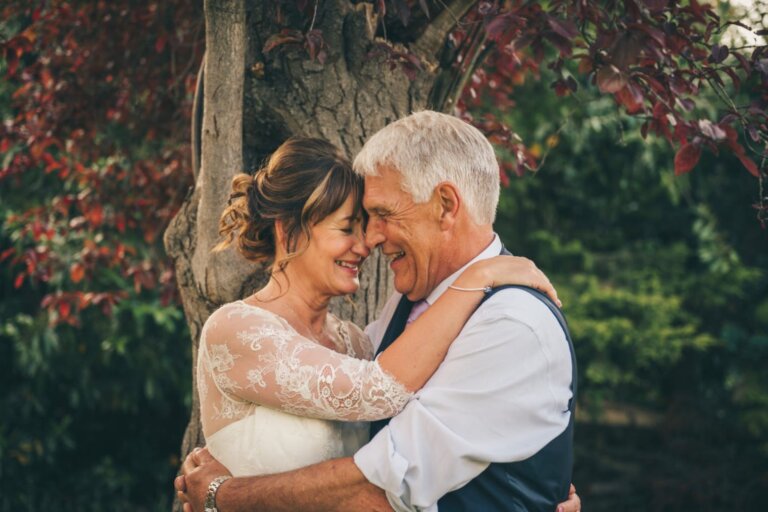
Remember that checklist we encouraged you to make? Now’s the time to consult that and make sure everything specific to you has been covered. You can use our handy wedding checklist tool and it’ll do a lot of the work for you.
Not that it’s strictly part of planning a wedding, but many couples like to enjoy a night or two away from their partners during the buildup to the wedding for a stag and/or hen do. This can be anything that your heart (and budget) allows. It could be anything from a night out clubbing to a weekend off in Europe. It could even be a night in playing board games – whatever floats your boat (you could also spend it on a boat!).
Similarly, a popular non-negotiable for couples is a honeymoon. Our 2023 Wedding Report found that the average amount spent on a honeymoon is £4,200, so among the hustle and bustle of planning your wedding, you might want to set some time aside to think about whether you’d like to go away after the wedding for a honeymoon. Or, perhaps a minimoon will be a little kinder to your budget, followed by a honeymoon a few months later?
Plan your dream wedding with Bridebook
Planning a wedding is a long but also incredibly fun and exciting process. Sign up to Bridebook today to access all the tools, tips and information you’ll need to make planning the most incredible wedding a breeze.
Browse other similar articles…
- How to Get Married: The Ultimate Step-By-Step Guide
- The Ultimate Wedding Planning Checklist
- The Ultimate Wedding Ceremony Guide
- The Best Wedding Day Timeline

